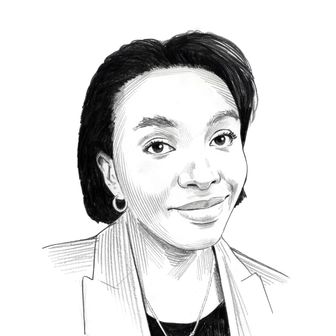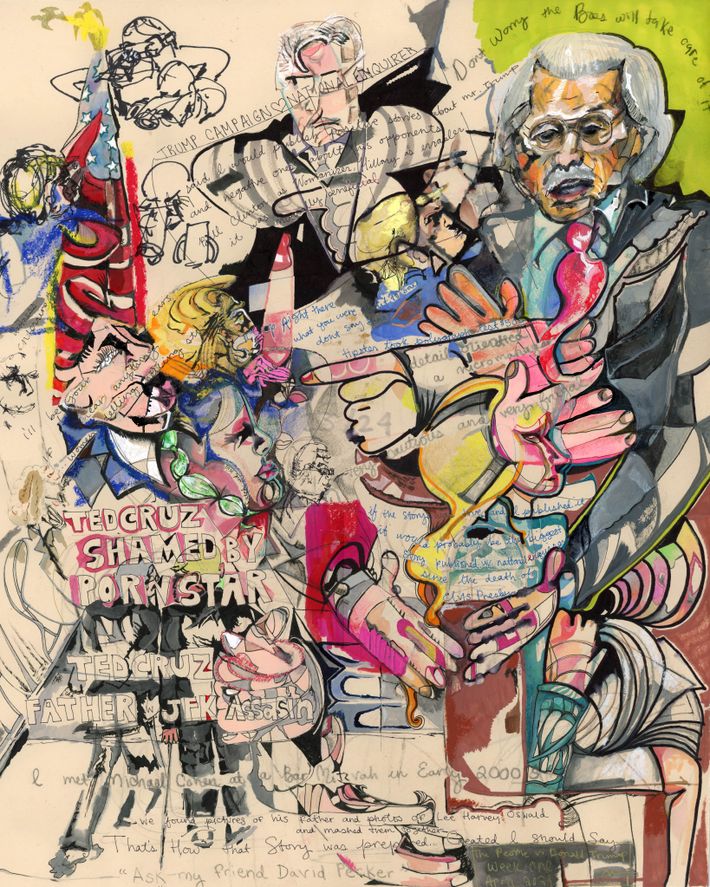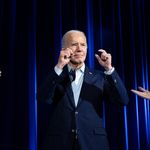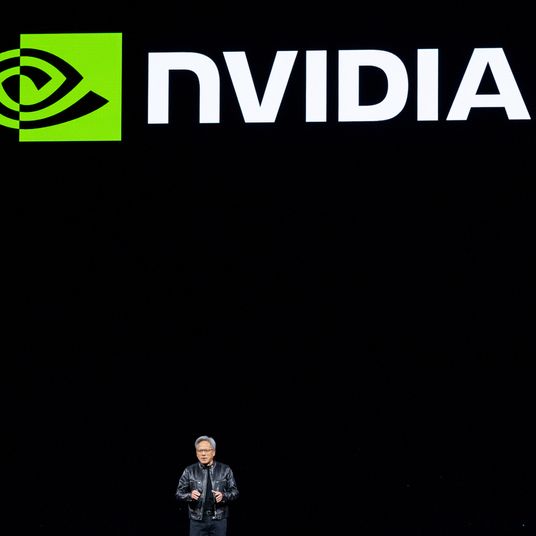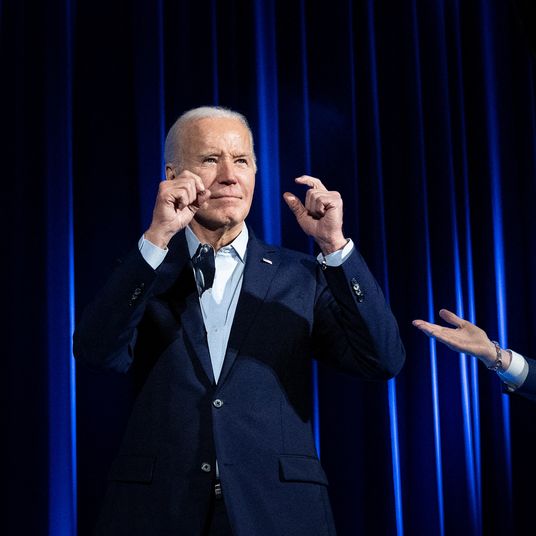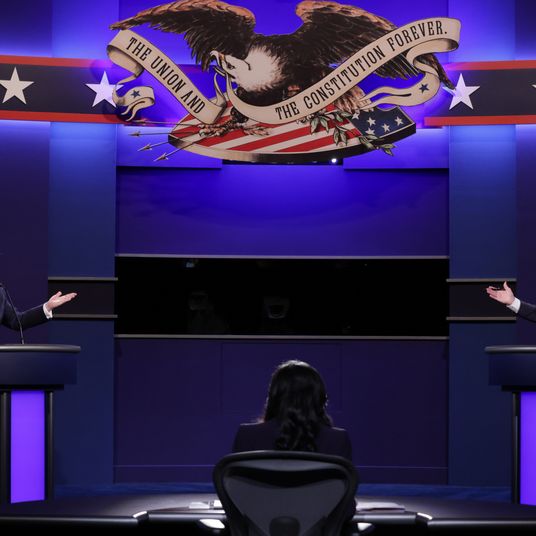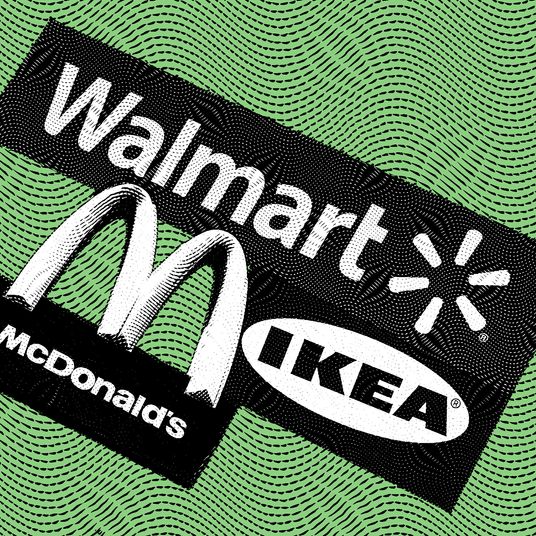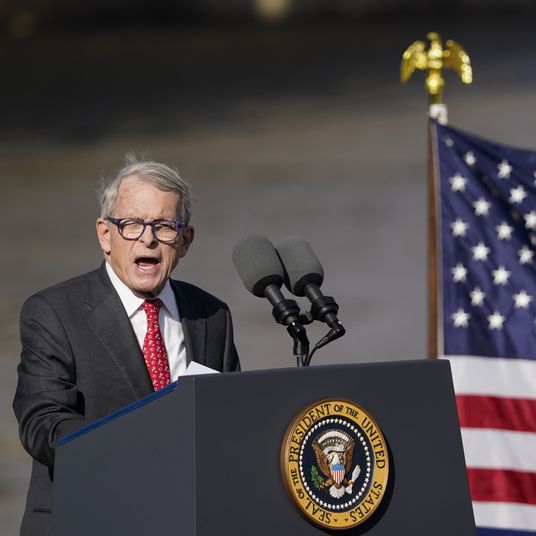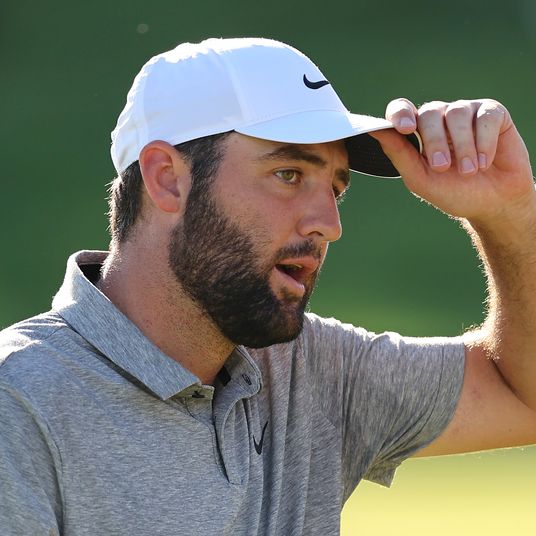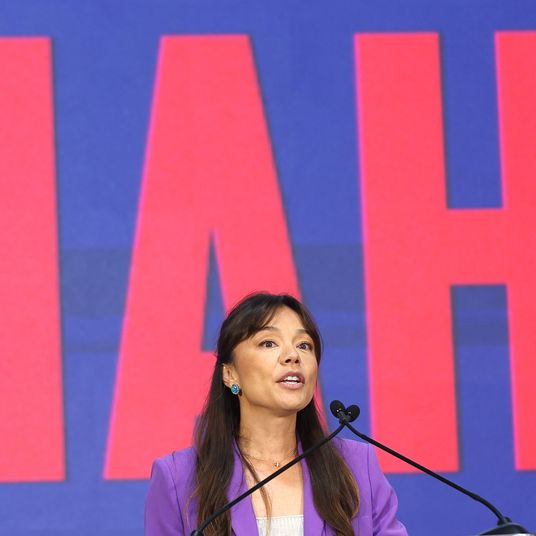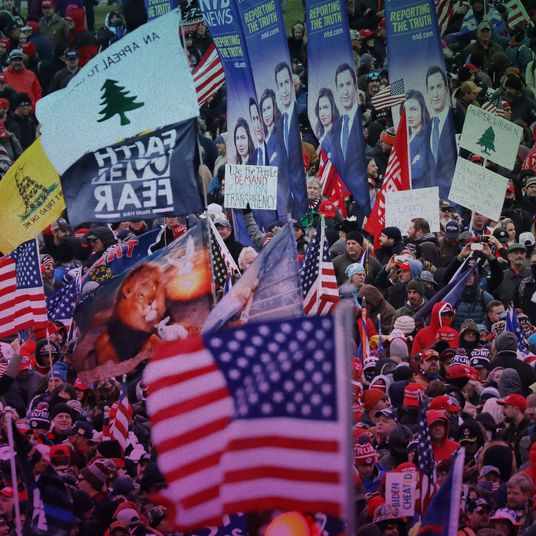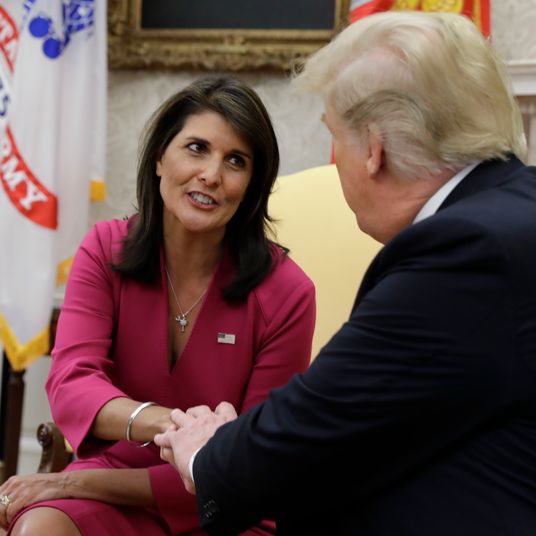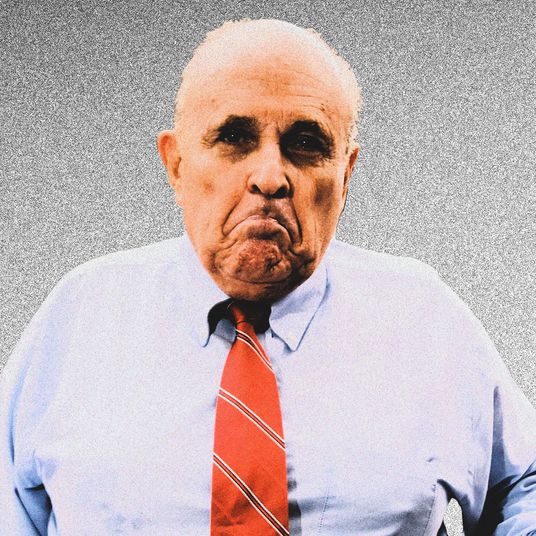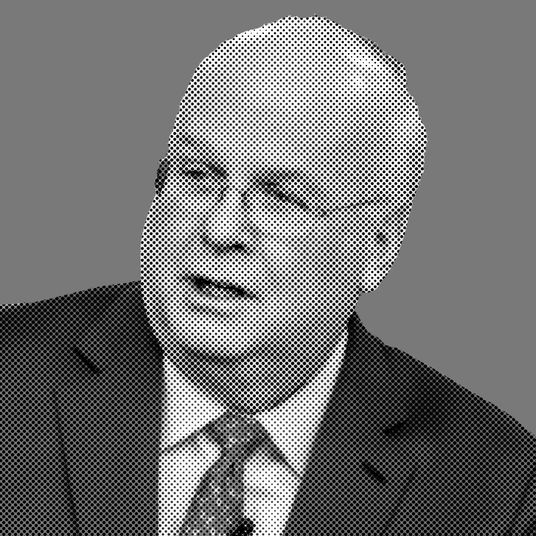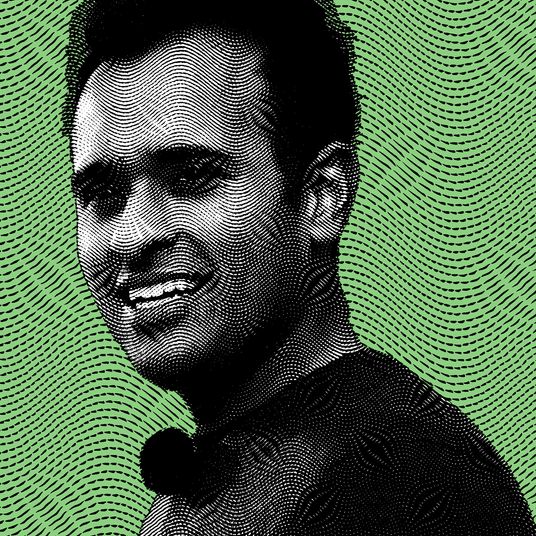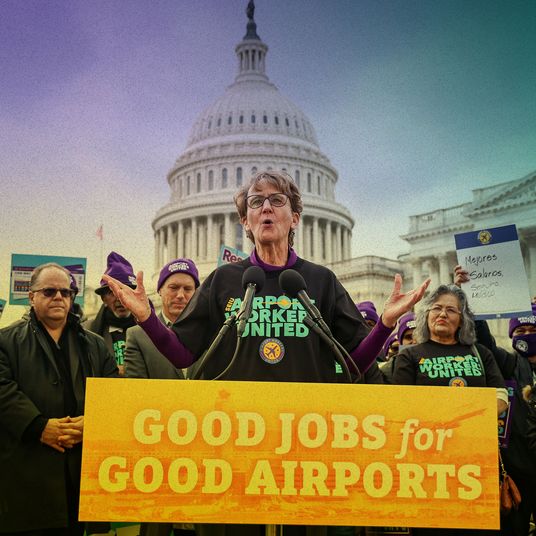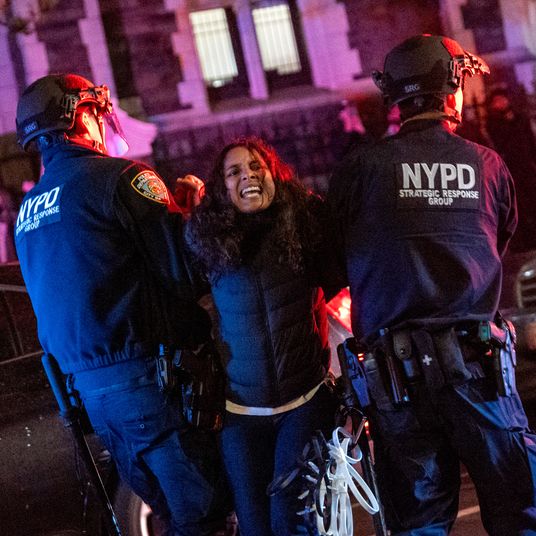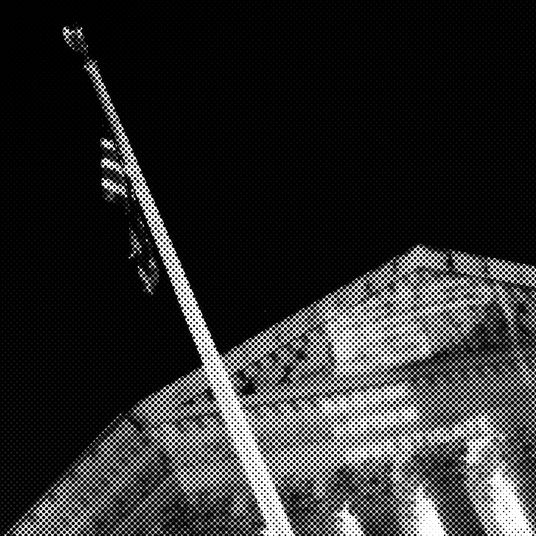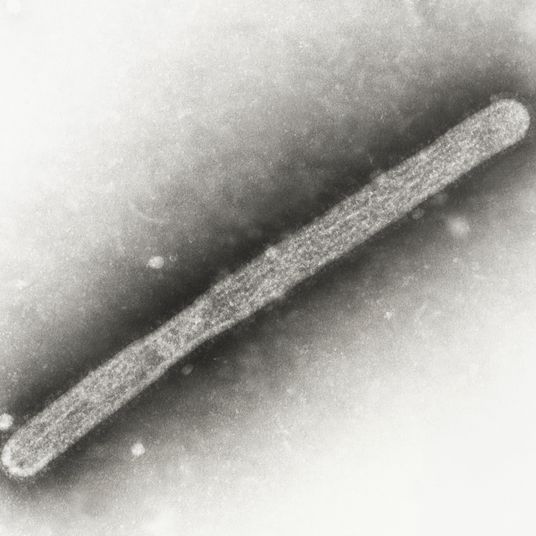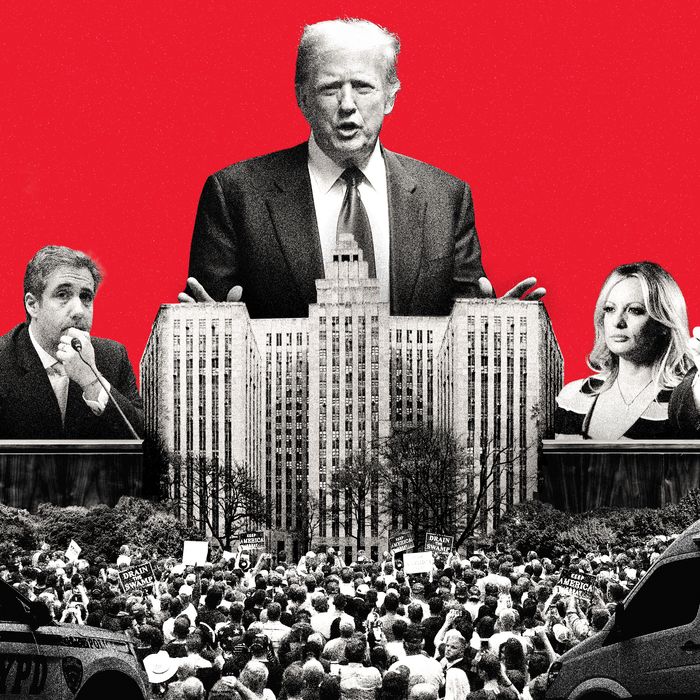
Donald Trump’s first and potentially only criminal trial before Election Day is underway. It’s also the first such trial ever for a former president, one who could be sent to prison if convicted on charges that he broke the law by paying, and subsequently disguising, hush money to Stormy Daniels via his personal lawyer Michael Cohen during the 2016 campaign. (Judge Juan Merchan could punish him in the meantime for contempt of court, such as repeatedly violating a gag order.)
Below is our recap of the untelevised trial, which we’ll update daily with all the important developments and drama. (You can learn more about the key people involved in the trial here.)
Day 21: What to Expect
Judge Merchan is expected to give his final rulings on the jury’s charging instructions on Thursday. Testimony in the trial is complete, and closing arguments are expected next Tuesday, following the long Memorial Day weekend.
Day 20: The Defense Rests
On Tuesday, the prosecution continued its cross-examination of lawyer Robert Costello, who turned out to be the trial’s final witness.
A debate over words
Although the jury was excused earlier in the day, Judge Merchan and the attorneys for both sides returned to the court that afternoon for the important but often dry work of hashing out jury instructions. Even though seemingly tedious, the wording of the charging instructions can have significant implications for both the prosecution and the defense as the jury considers its verdict. In a light moment, Merchan joked about removing the word eleemosynary, spelling it for the court after he said he couldn’t pronounce it. Trump lawyer Emil Bove and prosecutor Matthew Colangelo both laughed, and the word was dropped without objection.
Bove argued that Merchan should tell the jury that hush-money payments aren’t illegal. Colangelo disagreed, asserting that such an instruction would amount to the judge making the defense team’s arguments for it. Merchan ultimately sided with the prosecution. “I think that to take it to the next level and actually give an instruction to the bench is taking it too far. I don’t think it’s necessary,” he said, per CNN.
Merchan said he will try to get final instructions to both sides by the end of the day on Thursday.
Trump complains about gag order … again
Trump, once again, made comments to the media when he returned to the courtroom Tuesday afternoon for a discussion on jury instructions. Although he opted not to testify in his own defense, Trump continued to rail against the gag order placed on him, claiming that it’s preventing him from speaking.
Scenes from outside the courtroom
Trump’s Republican allies spoke to members of the media outside the courthouse, as they typically do on court days. During their often freewheeling appearances, the surrogates compared Trump to the pope and took shots at Merchan’s family, something Trump is barred from doing under the gag order.
Trump won’t take the stand
The defense officially rested its case after a brief redirect of Costello, meaning that Trump won’t be testifying in this trial. Judge Merchan dismissed the jury until next Tuesday, when closing arguments are expected to begin. Court is expected to reconvene this afternoon.
Costello denies pressuring Cohen
Emil Bove, Trump’s lawyer, asked Costello about his interactions with Cohen. “Did you ever pressure Michael Cohen to do anything?” he asked. Costello said he did not.
“Did you ever have control over Michael Cohen?” Bove asked.
Costello responded with a smirk, “Clearly not.”
Costello’s cross-examination continues
Prosecutor Susan Hoffinger continued her cross-examination of Costello Tuesday morning, raising an email between Costello and Cohen in which Cohen told Costello to stop contacting him. Cohen has testified that he felt that Costello’s intent in their communications was to keep Cohen in the fold and loyal to Trump. Costello denied telling Cohen about his relationship with Rudy Giuliani during their first meeting, but Hoffinger presented another email between the two, in which Costello wrote, “I told you my relationship with Rudy which could be very very useful for you.”
Hoffinger asked about an email that was discussed during Cohen’s testimony, in which Costello referred to Cohen having “friends in high places.” Costello confirmed that it “definitely referred to President Trump.” In another email, the lawyer wrote to his law partner, “Our issue is to get Cohen on the right page without giving him the appearance that we are following instruction from Giuliani or the president. In my opinion, this is the clear correct strategy.” When asked by Hoffinger what he meant, Costello said he was referring to getting everyone “on the same page.” Costello testified that he had no animosity toward Cohen. Hoffinger then asked if his recent testimony to Congress, in which he denounced Cohen as a liar, was his attempt to intimidate Cohen. “Intimidate Cohen? No, that’s ridiculous,” Costello said.
What happened when the courtroom was cleared
On Monday, Judge Merchan suddenly called for the courtroom to be cleared during a tense interaction with attorney Robert Costello. Members of the media in the gallery were quickly rushed out of the room and were unable to document what went on for several minutes. After the day’s proceedings, a transcript typed up by the court reporter revealed that, during that time, Merchan threatened to hold Costello in contempt after he rolled his eyes and muttered during his rulings:
Don Jr. to join his father in court
Donald Trump Jr. is slated to join his father in court on Tuesday. This will be the first time he has been part of Trump’s entourage to 100 Centre Street; his brother Eric has accompanied his father to court over the past few weeks. Trump will also be joined by former Florida attorney general Pam Bondi, actor and comedian Joe Piscopo, and former Trump-administration official Sebastian Gorka.
Day 19: The Prosecution Rests
A bang, then a whimper
After those brief fireworks, the defense’s remaining line of questioning was fairly calm. Trump attorney Emil Bove showed an email between Costello and Cohen in which Costello said he would pass along a message to Rudy Giuliani. Costello said he never pressured Cohen to do anything. He said he considered Cohen a client and was only concerned with his best interests.
Prosecutor Susan Hoffinger cross-examined Costello for the defense, asking him if landing Cohen as a client would’ve been a big deal for him. “I didn’t know Michael Cohen from a hole in the wall,” he said. Hoffinger then asked, “So you weren’t hoping to represent Michael Cohen?” Costello said “no.” Hoffinger then raised an email from Costello’s son congratulating him on getting Cohen as a client. According to those in the room, the jury was watching closely as Costello frequently corrected Hoffinger’s questions. At one point, he told her to “speak into the microphone, please.” The jury was excused with the prosecution’s cross-examination expected to continue on Tuesday.
Before court adjourned for the day, Trump attorney Todd Blanche requested a dismissal of the case, saying that Cohen is not credible. Merchan, who said he would reserve his decision, asked of Blanche, “You said that his lies were irrefutable, but you think he’s going to fool 12 New Yorkers into believing this lie?” in reference to the jury.
Judge Merchan scolds witness
According to observers in the room, Costello seemed frustrated by the multiple sustained objections and could be heard muttering “ridiculous” into the mic, per CNN. In one moment, Costello said “jeez” after another sustained objection from Merchan, prompting the judge to look at Costello sharply and say, “I’m sorry?” Costello then asked for his comment to be struck from the record.
It was then that things grew chaotic. Merchan asked the jury to leave the room while asking Costello to remain seated. The judge then scolded Costello for his outbursts, saying he wanted to discuss “proper decorum” in his courtroom. “If you don’t like my ruling, you don’t say ‘jeez,’ and you don’t say ‘Strike it,’ because I’m the only one who can strike testimony in court,” Merchan said. He added, “You don’t give me side-eye, and you don’t roll your eyes.” Costello glared at the judge, causing Merchan to ask, “Are you staring me down right now?” He then called for the courtroom to be cleared with the press briefly ordered out of the room. After a moment, the gallery was allowed back into the courtroom and the jury was called back.
The defense calls Robert Costello
Blanche briefly questioned Daniel Sitko, a paralegal at his law firm, over a chat submitted into evidence showing 75 phone calls between Cohen and Costello. Blanche then called Costello himself to the stand. Immediately, the prosecution called for a sidebar, and the jury was excused as the two sides discussed the scope of the questions Costello could be asked. Merchan left the courtroom briefly to consider the issue and returned, allowing Costello to be questioned but with some restrictions, saying he did not want this to become “a trial within the trial.”
Bove began his questioning of Costello, asking about his first meeting with Cohen in the Regency Hotel after he was subjected to an FBI raid in 2018. Costello described Cohen as being “absolutely manic,” pacing back and forth. The prosecution objected several times to Bove’s line of questions, many of which were sustained by Merchan. Costello testified that Cohen said “numerous times” that Trump wasn’t aware of the payment to Daniels.
A picture’s worth a thousand words
Before the court broke for lunch, the prosecution asked to submit newly discovered photos into evidence: shots of Trump with his bodyguard Keith Schiller on October 24, 2016, at around the time that Cohen has alleged that he called Trump on Schiller’s phone. The photos, which were at a rally, were drawn from C-SPAN’s archives. The defense has attempted to call that phone conversation into question. Merchan took the lunch break to revisit the testimony from the C-SPAN archivist who spoke earlier in the trial and asked the prosecution for a timeline for the witness to potentially return to court.
After a brief break, the prosecution said it reached C-SPAN, which was in the process of booking travel for Robert Browning, the executive director of C-SPAN’s archives, to return to New York to testify tomorrow. In the end, that proved to be unnecessary: The defense and the prosecution came to an agreement to admit the photo without the need for the witness’s return. When Cohen returned to the stand, Hoffinger asked him to identify the figures in the photo. It’s a still taken from a video of a Trump rally in Tampa, Florida. Cohen identified both Trump and Schiller.
During a brief re-cross-examination from the defense, Blanche asked Cohen about his license to practice law. “You lost your law license. Is that President Trump’s fault?” he asked. Cohen responded, “In part.” After days on the stand, Cohen completed his testimony and the prosecution officially rested.
Approaching the finish line
After the lunch break, Blanche indicated that the defense could potentially rest today, following brief witness testimony.
A redirect
Hoffinger rose to requestion Cohen, taking aim at the defense’s arguments. She asked Cohen about his busy schedule during the time of the Daniels payment, asking if he was usually busy. He said “yes.” Hoffinger asked directly if Cohen was too busy to finalize the payment and to get Trump’s approval. “No, ma’am,” he responded.
Cohen also had an opportunity to expand upon his interaction with RedFinch, explaining that he used the firm to boost Trump’s numbers in online polls. He said he kept the additional $30,000 that he overbilled Trump for in response to the lower bonus he received from the Trump Organization. “I was angered because of the reduction of the bonus,” he said.
Cohen acknowledged that his letter to the FEC as well as the 2018 letter signed by Daniels denying the affair were intentionally misleading and agreed that Trump knew of the substance of these statements and approved. Hoffinger asked about a line in the FEC letter that claimed that the payment “does not constitute a campaign contribution.” When asked if that was a true statement, Cohen responded, “No, ma’am.”
Cohen on loyalty
Before wrapping up his cross-examination, Blanche asked if Cohen had a financial interest in the case. Cohen said he did but denied that Trump being convicted would benefit him personally. “It’s better if he’s not, for me, because it gives me more to talk about in the future,” he said, referring to his TikTok account and podcasts.
In a final exchange, Blanche asked Cohen if it was true that he would lie out of loyalty, pointing to Cohen’s past testimony in which he said he had lied to Congress out of loyalty to Trump. “Yes, sir,” he replied.
Fatigue setting in
With the trial entering its sixth week, weariness levels are going up. The New York Times reports that the jury seemed “bored” during Blanche’s third day of cross-examination. Trump, who has already been caught dozing off during court, appeared to be fully asleep on Monday morning, per a New York Daily News reporter in the room:
More Cohen cross-examination
Blanche asked Cohen about legalwork he performed for Trump in 2017, a way for the defense to suggest that payments Trump made to Cohen were legitimate. Cohen confirmed that he did work for Melania Trump, including trademark negotiations with the wax museum Madame Tussauds. Cohen said he also did consulting work for AT&T after meeting the CEO through Trump.
Blanche asked Cohen if he had informed others at the time that Trump knew nothing about the Stormy Daniels payment at the center of the trial. Cohen said “yes,” noting that he said as much in interviews with reporters.
Cohen admits to theft
Blanche asked Cohen about RedFinch, a tech company whose services he used during his time working for Trump. Cohen admitted that he paid the company only $20,000 but asked to be reimbursed by the Trump Organization for $50,000. That number was part of the $420,000 figure that Cohen was ultimately repaid, including the Daniels payment. “You stole from the Trump Organization, right?” Blanche asked. “Yes, sir,” Cohen replied.
Cohen returns
Blanche continued his cross-examination of Cohen by asking the ex-fixer if he had spoken to any reporters since he took the stand last week. Cohen said he had but that he didn’t discuss his testimony. As he did last week, Blanche then jumped between subjects, asking Cohen about his congressional testimony and his taxi-medallion business.
Eventually, he turned to the timeline of the Daniels payment, pointing out that Cohen was juggling a lot in October 2016: There were issues with Cohen’s taxi medallions, he was helping Tiffany Trump with an extortion lawsuit, and he was trying to secure an endorsement for Trump from a relative of Martin Luther King Jr. Cohen made two phone calls to Trump on October 26, 2016, the day the Daniels payment was made. Blanche asked if he spoke to Trump about these other subjects instead of Daniels. Cohen stuck to his story: “My recollection is that I was speaking to him about Stormy Daniels because that was what he tasked me to take care of,” Cohen testified.
Discussions on a possible expert witness
Court reconvened earlier than usual to allow for discussions about possible evidence and witnesses. Merchan declined the defense’s request to enter an email between Cohen and Costello into evidence. The judge also narrowed the scope regarding an expert witness for the defense: former FEC commissioner Brad Smith. Citing his previous rulings and a similar decision from the judge in the Sam Bankman-Fried case, Merchan ruled that Smith can testify about what the FEC is and define general terms but is barred from giving his interpretation of specific statutes.
End in sight
Last week, Judge Merchan urged both sides to prepare for closing statements over the next few days. But on Monday, the judge said summations will likely take place next Tuesday, following the Memorial Day holiday. “It was either have a long break now or have a long break then, and unfortunately the calendar is what it is,” he said.
With the defense expected to finish its cross-examination of Cohen on Monday, Trump’s legal team will have the opportunity to present its own witnesses if it so chooses. It’s still unclear if Trump will take the stand in his own defense.
More support for Trump
Trump is set to be joined in court by more allies on Monday, continuing a trend over the past few weeks. On the list are four members of Congress; Alan Dershowitz, an attorney who served on Trump’s legal team for his first impeachment; and former NYPD commissioner Bernie Kerik.
Day 18: Cohen’s Cross-Examination Continues
The defense on Thursday continued (and didn’t conclude) its cross-examination of Michael Cohen, who is expected to be the prosecution’s last witness in this case.
The Stormy Daniels payment
After briefly broaching the subject earlier in the day, Trump’s lawyer Todd Blanche finally raised the $130,000 payment made by Cohen to Stormy Daniels. Blanche asked if Cohen recalled saying that Daniels and her legal team were “extorting” Trump. Cohen said he did. Blanche moved on to the nondisclosure agreement signed by Daniels, asking Cohen if this was a “completely legal binding contract.” He responded, “Yes, sir.”
Cohen was then asked if he had a retainer agreement for his work for the Trump Organization or any legalwork he did for the Trumps personally. He said he did not and confirmed when asked that New York’s laws don’t require a retainer.
Grabbing Trump’s attention
Observers in the room noted that Trump appeared far more engaged during Blanche’s cross-examination of Cohen. During the bulk of the testimony in this trial, Trump has seemed uninterested and is often seen leaning back in his chair with his eyes closed.
The art of recording conversations
Blanche, who has made a habit of switching his line of questioning frequently, turned back to Cohen’s relationship with the media following the lunch break. Cohen confirmed that he would work to make sure there were positive stories about Trump in the media. Cohen said he would consult with Trump about stories out of concern that he would “blow up” at him if not. He admitted to secretly recording phone conversations he had with reporters, something that is legal under New York’s one-party consent law, but said he stopped doing that following the 2016 election. Cohen acknowledged having recorded Trump while he represented him — which Blanche jumped on. “You understand that it is not ethical for a lawyer to record a conversation with their client,” he asked. Cohen agreed but noted the crime-fraud exception.
Blanche continued to ask about the September 2016 recording of Trump, purportedly about the Karen McDougal deal, that was previously played for the court. He suggested that when Trump said “pay in cash” that he could’ve been referring to a deal with no financing rather than literal cash.
Questions about a conversation
By 12:30 p.m., Blanche finally somewhat broached the subject of the payment made to adult-film star Stormy Daniels. He asked Cohen about a phone call that he testified about between him and Trump regarding the resolution of the Daniels deal through Trump’s bodyguard Keith Schiller’s phone. Blanche tried to cast doubt on the call, implying that he never raised it before. He even tried to suggest that the call was about a 14-year-old prank caller who had been harassing Cohen.
Cohen on his post-2016-election prospects
Blanche picked up a line of questioning first raised by the prosecution: whether Cohen wanted to work in the White House following Trump’s election. Previously, Cohen said he didn’t want to work in Washington, but rather simply wanted to be considered for a role as a boost to his ego. Blanche attempted to poke holes in that testimony, raising texts between Cohen and his daughter where Cohen discussed possibly being chief of staff. Cohen insisted that he always wanted to be personal attorney to the president, a hybrid role outside of the White House that would give him access to Trump.
Cohen was asked about his trouble getting inauguration tickets and whether he agreed with his daughter’s sentiment in a text that Trump’s people were “walking all over you.” He said he agreed with her at the time.
Blanche asked, “But you were disappointed that after all the work that you had done for President Trump for nine and a half years, nobody — including President Trump — offered you a position in the White House?”
Cohen responded, “That’s not accurate.”
Cohen confronted with past lies
The defense has sought to cast doubt on Cohen’s reliability as a witness by raising lies that he’s told in the past. Cohen was asked about his previous lies under oath, falsehoods that he testified earlier were for Trump’s benefit. He confirmed that he lied during his past testimony to Congress. Blanche questioned Cohen about his 2018 charges for tax evasion, asking about past comments where he called the counts “bogus.” Cohen maintained that he felt he shouldn’t have been charged and that he only pleaded guilty to protect his family.
When Blanche asked if Cohen lied to a federal judge because “the stakes affected you personally,” Cohen admitted that was true. Blanche asked Cohen about the various people he’s blamed for his convictions, including judges, his accountant, and even federal prosecutors. Cohen agreed that he had. Blanche questioned Cohen about a past claim that he had never asked Trump for a pardon and wouldn’t have accepted one. “I never asked for it,” Cohen said, adding that he asked his lawyer about it after hearing Trump talk about pre-pardoning on TV. Cohen said a pardon had been “dangled” and admitted that he had his legal team explore that option. “I wanted this nightmare to end,” he said.
Cohen vs. Blanche: round two
Blanche picked up his cross-examination where he left off on Tuesday. Blanche began by asking Cohen about his interactions with Jeremy Rosenberg, a former investigator with the district attorney’s office. The defense attempted to ask about a series of texts between the two, but they weren’t allowed in after Judge Merchan sustained an objection from the prosecution. Blanche asked if Cohen learned of Trump’s indictment in this case from Rosenberg. The ex-fixer denied this, saying that he learned about it in the New York Times.
Blanche then played clips of Cohen’s Mea Culpa podcast for the court that featured Cohen’s trademark loud and brash-sounding voice, a stark contrast from the calm and controlled tone he’s used while testifying. In the clips, Cohen can be heard celebrating Trump’s indictment, saying, “I truly f–king hope that this man ends up in prison” and “… Revenge is a dish best served cold and you better believe I want this man to go down and rot inside for what he did to my family.” Cohen acknowledged that he continued to insult Trump and comment on the trial despite having his social media monitored by the district attorney’s office.
Trump’s lawyers continue gag-order fight
Trump’s legal team has filed an appeal to New York’s highest court over its fight to overturn or modify the gag order placed on him. His lawyers are seeking input from the Court of Appeals after a lower court rejected their request to lift the order on Tuesday.
A full house for Trump
More congressional Republicans are expected to make the hours-long pilgrimage from Washington, D.C., to 100 Centre Street to support Trump during his trial. The House Oversight Committee reportedly pushed back the time of its planned markup meeting to draft a contempt citation against Attorney General Merrick Garland in order to allow members to attend.
While Congressman Matt Gaetz and Congresswoman Lauren Boebert got prime seating just behind Trump in the first row, the New York Times reports that many in Trump’s entourage were forced to sit in the back or the outside room designated for Trump and his team.
Day 17: Cohen in the Hot Seat
On Tuesday, the prosecution completed its questioning of Michael Cohen. Trump’s lawyer Todd Blanche led the defense’s cross-examination, which went to some strange places.
Cohen explains past praise
Blanche brought up past comments from Cohen praising Trump and calling him a good man. “At the time, you weren’t lying, right?” he asked. Cohen responded, “At that time, I was knee-deep into the cult of Donald Trump, yes.” Cohen confirmed that he had said in 2017 that he missed Trump. Blanche asked Cohen if he was obsessed with Trump. “I don’t know if I would characterize it as obsessed. I admired him tremendously,” he said.
Blanche’s cross-examination has jumped between a variety of topics, and at times, the former federal prosecutor launched into obscure lines of questioning. Blanche then returned to an earlier tactic of raising Cohen’s profane social-media posts about Trump, which Cohen acknowledged with terse responses.
Before court wrapped up for the day, Cohen disclosed under questioning that he had made about $3.4 million over the past four years for two books he wrote about Trump, Disloyal and Revenge.
Trump nap watch
The most anticipated cross-examination of the trial is not enough to keep Trump’s attention, apparently. The Times notes that Trump “has dropped his head repeatedly and appears to be struggling to stay awake” as his team questions Cohen. This is far from the first time he has nodded off.
Blanche enters the ring
After the court returned from lunch, Todd Blanche rose to begin the defense’s cross-examination of Cohen. Blanche’s questioning started with a bang as he asked Cohen if they had ever met before. When Cohen said no, Blanche said that Cohen had called him a “crying little shit” in a TikTok video he posted. Cohen responded, “Sounds like something I would say.” The prosecution quickly objected to the line of questioning, which Judge Merchan sustained. He then had counsel from both sides approach the bench for a quick sidebar.
Cohen confirmed that he has been following the trial and admitted that the proceedings are “personally” important to him. Blanche asked him if the prosecutors in the case have requested that he stop discussing the case publicly. Cohen said they had, and acknowledged that he’s continued to talk to the press about the case anyway. Blanche asked Cohen about his media appearances and how frequently he discusses Trump publicly. Cohen said he mentions Trump every time he records his podcast or a TikTok. At one point, Blanche asked point-blank if Cohen wanted to see Trump convicted in this case. “Sure,” he said bluntly.
Though now disbarred, Cohen often took a lawyerly approach to his answers. Blanche asked Cohen if his TikToks make money, and he responded, “Money is made from it, yes.” Per CNN, Blanche countered, “That’s not my question. One of the reasons you do it is to make money, yes or no?” Cohen eventually said “yes.”
Regrets, he’s had a few
Before the prosecution ended its questioning, Cohen was asked if he had any regrets about his past association with Trump. He said he did.
“I regret doing things for him that I should not have. Lying, bullying people in order to effectuate the goal,” Cohen admitted. “I don’t regret working for the Trump Organization. As I expressed before, some very interesting, great times. But to keep the loyalty and to do things that he had asked me to do, I violated my moral compass and I suffered the penalty and so has my family.”
Asking for loyalty
Cohen described meeting defense attorney Robert Costello in the Loews Regency conference room after the raid on Cohen’s apartment there in 2018. He said Costello would act as a back-channel to Trump, with Costello passing his communications with Cohen along to Rudy Giuliani, who had joined Trump’s legal team. The court was shown a series of emails between Costello and Cohen, including one where Costello wrote, “Sleep well tonight. You have friends in high places.” Cohen testified that he understood that he understood that to be a reference to Trump. Cohen described Costello’s emails to him as being “part of the pressure campaign that everyone is lying to you, that you are still regarded.” Cohen said Costello’s emails to him were “part of the pressure campaign” to make sure he didn’t turn on Trump. He claimed a conversation with his family is what prompted him to reconsider his allegiance to Trump and his decision to plead guilty. “I made a decision based again on the conversation I had with my family that I would not lie for President Trump anymore,” Cohen said.
The last time Cohen and Trump spoke
Cohen testified about the day the FBI raided conducted a raid on his office in April 2018. He described opening the door to his room at the Loews Regency hotel early in the morning to find a group of agents who later confiscated his phones and other devices. Cohen said he was “despondent” and “angry” following the raid and said he left a message for Trump, which he later returned.
Trump said to him, “Don’t worry. I’m the president of the United States. There’s nothing here. Everything’s going to be okay. Stay tough. You’re going to be okay.” According to Cohen, this was the last time he and Trump spoke.
Cohen explains some lies
The prosecution displayed a series of text messages between Cohen and Daniels’s lawyer Keith Davidson after Daniels was contacted by the Wall Street Journal for its 2018 piece about the deal. Cohen told Davidson, “Write a strong denial comment for her like you did before.” The court was shown a statement that Daniels issued, denying the affair. Cohen said he knew it was false because he helped to “craft it.” Cohen also discussed his response to the Federal Election Commission, which opened an investigation into the payment following the article’s release. He said the letter was intentionally “misleading,” saying that neither the Trump Organization nor the Trump campaign was involved with the payment, rather than Trump himself. His reasoning? “In order to protect Mr. Trump, to stay on message, to demonstrate continued loyalty,” Cohen said.
Speaker Johnson defends Trump
Speaker Mike Johnson, who showed up on Tuesday to support Trump, gave prepared remarks outside the courthouse, defending the ex-president and denouncing his criminal trial as a “sham.” He took no questions from the assembled members of the media.
Cohen back on the stand
On Tuesday morning, prosecutor Susan Hoffinger picked up where she left off in her questioning of Michael Cohen, Trump’s former attorney. Cohen spoke about meeting Trump in the White House in February 2017. He said that in the Oval Office, the two discussed how Cohen would be reimbursed for the money he fronted for the Stormy Daniels payment. Cohen testified that Trump told him he would receive a check for January and February and said to “deal with Allen,” referring to Trump Organization CFO Allen Weisselberg. Cohen confirmed that he wasn’t under a retainer and that the invoices he filed for legal services were false and were intended for his reimbursement. He said that he received 11 checks totaling $420,000, and that Eric Trump and Weisselberg signed the first two checks, but that Trump himself signed them starting in April.
In anticipation of his likely contentious cross-examination, the prosecution asked about Cohen’s testimony before Congress, which resulted in him pleading guilty to lying under oath. Cohen said he felt “tremendous pressure” after he was called to testify and acknowledged that he lied to Congress about the discussions surrounding Trump Tower Moscow. Cohen said he lied because “I was staying on Mr. Trump’s message that there was no Russia, Russia, Russia.”
Kissing the ring
The courtroom at 100 Centre Street is quickly becoming the hottest ticket in town for vice-presidential hopefuls and other Republican allies hoping to get in Trump’s good graces. On Tuesday, House Speaker Mike Johnson will be joining him in court, the highest-ranking official to do so thus far. Potential VP candidates like North Dakota governor Doug Burgum and Congressman Byron Donalds of Florida and Cabinet contender Vivek Ramaswamy will also be in the room supporting Trump. Senator J.D. Vance of Ohio, another possible veep pick, appeared on Monday.
Cohen’s testimony from inside the room
From his vantage point in the courtroom, New York’s Andrew Rice wrote about how Trump attempted to exude an air of confidence as his former lawyer Michael Cohen took the stand:
As the witness parsed his incriminating words for the jury, Trump made sure everyone in the courtroom could see his mind was elsewhere. He was ostentatiously reading from a sheaf of papers he had carried with him into the courtroom. He plucked up the next page and leaned back in his chair, allowing me to catch a glimpse of a familiar set of red and blue bar graphs. It was the latest New York Times poll of battleground states. Before coming into court in the morning, Trump had waved the Times story accompanying the poll in front of reporters in the hallway, saying it “shows us leading everywhere by a lot.” Up by three in Pennsylvania, seven in Arizona and Michigan, ten in Georgia, 12 in Nevada. “I think we’re leading in New Jersey,” Trump said, citing as evidence the size of his rally over the weekend in Wildwood.
Let the star witness testify, Trump seemed to be saying. He was winning where it mattered.
Day 16: The People Call Michael Cohen
Trump’s former attorney Michael Cohen took the stand Monday, the biggest day of testimony yet in the trial.
The heart of the matter
Cohen testified that he and Trump Organization CFO Allen Weisselberg worked out the process for reimbursing him for the Stormy Daniels’s payment plus the additional money he was owed, discussing the matter in Trump’s New York office. Weisselberg calculated the final sum to be $420,000, which Cohen would be paid over a span of 12 months. Cohen would be required to submit an invoice and would later be issued a check for “legal services rendered.”
Cohen wanted to be considered for top White House jobs
After Trump was elected, Cohen said his name came up in discussions about potential job in his administration. He testified that though he knew he wasn’t a good fit, Cohen was disappointed that he wasn’t considered for chief of staff. “It was more about my ego than anything,” he admitted. Cohen said he pitched being “personal attorney to the president,” an unpaid role that would’ve allowed him to pick up other jobs due to his connection to Trump. Cohen testified that his end-of-the-year bonus in 2016 from the Trump Organization had been cut significantly, which he found “insulting” after he fronted $130,000 on Trump’s behalf. “I didn’t expect more, but I certainly didn’t expect less,” he said. Cohen said Trump promised he’d take care of the bonus.
Why and how Cohen made the large Daniels payment
Cohen said he discussed the Daniels payment with Weisselberg. The Trump Organization CFO asked if AMI would cover the money, but Cohen said that was unlikely. The Trump Organization CFO then suggested that Cohen make the payment since he personally could not due to family expenses. Cohen ultimately agreed to and he testified that Trump told him he would “get the money back.” The attorney used his home-equity line of credit to pay Daniels in order to hide the large sum of money from his wife.
Hoffinger asked Cohen if he would’ve made the payment without Trump’s approval. He said no. “Everything required Mr. Trump’s sign-off,” he said. “On top of that, I wanted the money back.” Cohen said he informed Trump as soon as he received Daniels’s signed agreement.
“This matter is now completely under control and locked down,” Cohen told him.
Cohen talks Access Hollywood and Stormy Daniels
Cohen said that he was abroad in London when he received a call from Hope Hicks about the Access Hollywood tape. He recalled thinking at the time that the tape would be “significantly impactful especially with women voters.” He said Trump described the words on the tape as “locker-room talk,” attributing the term to Melania Trump. Not long after the tape’s release, Cohen learned from Howard that adult-film star Stormy Daniels was trying to sell her story of a sexual encounter with Trump. When asked about his reaction to the story potentially coming out, Cohen said it would’ve been “catastrophic” for the campaign. When Cohen relayed the news to Trump, he said he was angry and that he thought Cohen had taken care of this. He recalled Trump saying it would be a “total disaster” for the campaign and saying that “women will hate me.”
The defense has argued that Trump was motivated to make a deal with Daniels to protect his family, but Cohen said differently on the stand. Cohen recalled asking Trump what Melania might think. “He goes, ‘How long do you think I’ll be on the market for? Not long.’ He wasn’t thinking about Melania. This was all about the campaign,” Cohen said. The prosecution displayed an email from Keith Davidson, Daniels’s attorney with the original $130,000 deal between Daniels and Trump. Cohen took credit for the punitive damages clause that would fine Daniels $1 million per violation of the non-disclosure agreement, adding that it was “to ensure that she didn’t speak.”
Cohen confirmed that he lied on the bank paperwork to form Resolution Consultants, LLC, the company he initially planned to use to transfer the money to Daniels. “I’m not sure if they would’ve opened it if it stated to pay off an adult film star for a nondisclosure agreement,” he said. He would go on to create a second LLC, Essential Consultants, for that purpose. Cohen was shown the wire transfer between himself and Davidson. Though the reason for the payment was listed as “retainer,” Cohen confirmed that this was false and that the money was in exchange for the rights for Daniels’s story.
Cohen on his secret recording
In September 2016, Cohen secretly recorded a conversation between himself and Trump discussing the McDougal deal. In the clip, which was played for the jury, Cohen says he’s talked to Weisselberg about opening up an LCC to transfer info to “our friend David,” an apparent reference to Pecker. Trump can be heard saying, “pay with cash,” though Cohen testified that he was against this idea. Cohen said he recorded the conversation for Pecker’s benefit, so he would know his repayment was being discussed. He confirmed that he sought to open an LLC in order to have “separation” from Trump. Per Cohen, the recording cuts off because he received an incoming call at the time.
The Karen McDougal deal
During his testimony, Cohen described talking to Trump about model Karen McDougal who alleged she had an affair with him. When Cohen asked Trump if he knew McDougal, he responded, “She’s really beautiful.” Cohen told Trump that she was shopping her story, prompting him to order Cohen to “make sure it doesn’t get released.” The prosecution displayed a series of text messages between Cohen and Howard after he met with McDougal. In one exchange, Howard wrote, “Understand I’ve got this locked down for you. I won’t let it out of my grasp.” Cohen testified that he was in the room as Trump took a call on speaker with Pecker about the McDougal story. When Pecker said that it would cost $150,000 to “control the story,” Trump responded, “No problem, I’ll take care of it.” When Cohen informed Trump once the deal was complete, he seemed pleased. “Fantastic,” Trump said.
Pecker began to apply pressure on Cohen about getting reimbursed for the money used to pay for McDougal and doorman stories. The two met at an Italian restaurant and Cohen assured Pecker that he would get repaid.
J.D. Vance joins in on the trial livetweeting
Senator Vance, who is watching the trial in the courtroom as a show of support for Trump, has been tweeting his observations, criticizing Cohen, Manhattan district attorney Alvin Bragg and even offering his own explanation for Trump’s frequent naps during court:
Meeting David Pecker
Cohen testified about the key 2015 meeting at Trump Tower between himself, Trump, and American Media, Inc CEO David Pecker where the three discussed placing positive stories about Trump in the National Enquirer while running negative ones about Trump’s rivals during the election season. Cohen said Pecker’s offer also went beyond what went into print. “What he said was that he could keep an eye out for anything negative about Mr Trump, and that he would be able to help us to know in advance what was coming out and try to stop it from coming out,” he said.
Cohen described Trump warning him ahead of his presidential campaign launch that stories might emerge once he jumped into the race. “You know that when this comes out, meaning the announcement, just be prepared, there’s going to be a lot of women coming forward,” Cohen recalled Trump saying.
The first test of this new partnership was a circulating story about a Trump Tower doorman who was shopping details about an alleged lovechild of Trump’s. Cohen testified that he advised Trump on it and that he told him to “handle it.” He described keeping tabs on Pecker and National Enquirer editor-in-chief Dylan Howard as they moved to acquire the doorman’s story, updating Trump as the deal progressed. Cohen said he went to Trump immediately when the $30,000 deal was struck, wanting to ensure he got credit for his work. “That’s great,” Trump reportedly said.
Cohen faces Trump
After weeks of anticipation, the prosecution called Michael Cohen to the stand at the start of Monday’s proceedings. Trump did not appear to react when Cohen was asked to identify him by prosecutor Susan Hoffinger. Cohen described how Trump offered him a job after he went to him about a $100,000 bill for work that Cohen’s firm did for Trump. “And I was honored, I was taken by surprise,” he said. Cohen indicated that he worked directly for Trump and not out of Trump Organization’s general counsel office. The lawyer testified that he would renegotiate bills on Trump’s behalf, including vendors for the defunct Trump University, as well as challenge the press when negative stories about his client ran.
Cohen said he spoke to Trump multiple times a day in person or over the phone and was “required” to keep Trump constantly informed of what he was doing. Cohen confirmed that Trump didn’t use email due to his concerns about a paper trail. “He knows too many people who have gone down as a direct result of having emails that prosecutors can use in a case,” Cohen said. He testified that he would lie on Trump’s behalf and sometimes even bully or browbeat people in order to do what was asked of him. “The only thing that was on my mind was to accomplish the task, to make him happy,” Cohen said.
New additions to Trump’s entourage
On Monday, Trump was accompanied to court by several of his Republican allies. New York congresswoman Nicole Malliotakis was spotted in the hallway outside the courtroom while Senator J.D. Vance of Ohio and Senator Tommy Tuberville of Alabama were also in tow.
Day 15: A Half-Day Without Fireworks
On Friday, Madeleine Westerhout, Trump’s former executive assistant at the White House, returned to the stand for further testimony. The proceedings ended early after the court heard from several custodial witnesses on cell-phone records and text messages submitted into evidence.
Prosecution could rest its case next week
Prosecutor Joshua Steinglass said that his team intends to call two more witnesses next week and indicated that it’s reaching the end of its case. “And I think it’s entirely possible we will rest by the end of next week,” he said.
Tweets, calls, and texts
Georgia Longstreet, a paralegal with the Manhattan DA’s office, was called back to the stand. She previously testified about her role reviewing social-media posts as part of the investigation. Longstreet read several past tweets from Trump that showed his changing feelings toward Cohen. In one, Trump accused the New York Times of trying to “destroy” Cohen in order to get Cohen to flip on him. In another, Trump criticized his former lawyer’s legal abilities:
In addition, Longstreet reviewed text messages exchanged in 2016 between National Enquirer editor-in-chief Dylan Howard and Gina Rodriguez, Daniels’s former publicist. In one exchange, Rodriguez referred to Daniels as Trump’s “mistress,” supporting her story that they had sex. The texts provided additional details on the negotiations between the tabloid and Daniels’s team over her story. At one point, Rodriguez suggested as much as a $250,000 payment for Daniels, though that was eventually negotiated down.
The court also heard from Jaden Jarmel-Schneider, another paralegal from the district attorney’s office, who analyzed phone records, including those from Cohen’s phone. He confirmed the existence of calls between Cohen and Howard, Rodriguez, former Trump Organization CFO Allen Weisselberg, as well as AMI publisher David Pecker.
A pair of telecom custodial witnesses
The court heard brief testimony from two witnesses: Daniel Dixon, a compliance analyst with AT&T, and Jennie Tomalin, a senior analyst with Verizon. The two were subpoenaed as records custodians for their companies, verifying the authenticity of the records being submitted into evidence. AT&T records for Cohen’s cell phone were entered as well as Verizon phone records for Weisselberg and attorney Keith Davidson.
A message from Stormy
Following the end of her testimony on Thursday, adult-film star Stormy Daniels took to Twitter to goad Trump about potentially testifying. The attorneys on Trump’s defense team had requested a change to Trump’s gag order in order to allow him to respond to Daniels’s testimony, but their motion was denied by Merchan.
Cross-examination of White House aide concludes
The defense continued its cross-examination of Westerhout, Trump’s former White House executive assistant, on Friday morning. She testified that she recalled Trump speaking with Weisselberg, the former Trump Organization CFO, during the first year of Trump’s presidential term but no specific conversations about checks. Trump’s attorney Susan Necheles tried to suggest that the system of sending Trump’s personal mail, like checks, to his employees’ personal addresses was simply to help Trump receive things quickly owing to the White House’s slow security process.
Westerhout confirmed that she spoke to Trump about the Daniels story in 2018 and that he was “very upset” by it. She said he knew it would be hurtful to his family, but she clarified that Trump never made this point to her directly. Her comment was ultimately struck from the record.
Merchan rejects subpoena of Mark Pomerantz
Before court began, Judge Merchan denied a subpoena from Trump’s legal team for Mark Pomerantz, a former special assistant district attorney. Pomerantz was involved in then–Manhattan district attorney Cyrus Vance Jr.’s investigation of Trump’s finances but resigned from his role when Alvin Bragg took over and declined to indict.
Michael Cohen expected to testify next week
The court will soon hear from Cohen, the prosecution’s top witness in the case. According to reports, Trump’s former lawyer could take the stand as soon as Monday.
Day 14: Stormy’s Back
On Thursday, Trump’s team completed its cross-examination of Stormy Daniels. Judge Merchan denied a second mistrial motion from the defense as well as a request to modify Trump’s gag order in order to allow him to respond to Daniels’s testimony.
Merchan denies second mistrial motion.
Before court adjourned for the day, Merchan took time to consider a series of motions from Trump’s defense team. The judge denied their motion to alter the gag order in order to allow Trump to respond to Daniels’s testimony. Todd Blanche, one of Trump’s attorneys, then put forward a second motion calling for a mistrial, once again claiming that Daniels’s story contained salacious details that weren’t relevant to the case. He pointed to Daniels saying she spanked Trump with a magazine. “How that’s relevant to why we’re here, especially when you weigh it with the prejudicial nature,” he said. Blanche also criticized the prosecution’s questioning.
Merchan ultimately rejected the defense’s request for a mistrial. At one point, the judge seemed to criticize the defense’s approach, suggesting that they could’ve objected to some of the prosecution’s questions in the moment.
Trump’s former White House assistant speaks
Madeleine Westerhout, Trump’s former executive assistant at the White House, took the stand Thursday afternoon after being mentioned in testimony given by several earlier witnesses. Westerhout, who worked in what’s known as the “Outer Oval,” described her former boss as being very detail oriented, preferring hard copies and in-person meetings to email. She said he would even make handwritten edits to post drafts or dictate potential tweets. (“It’s my understanding that he liked to use the Oxford comma,” Westerhout said, prompting a laugh from Trump in the courtroom.) She confirmed that Trump’s longtime assistant Rhona Graff sent her a list of frequent contacts during the presidential transition. The list featured the names of publisher David Pecker and Michael Cohen but also more prominent ones including Tom Brady, Sean Hannity and Serena Williams.
The prosecution showed an email from Westerhout to Cohen, on February 5, 2017, that confirmed a 4 p.m. meeting on Wednesday. On the email, Westerhout said, “Mr. Cohen was coming in to meet with the president.” On the subject of checks, Westerhout recalled bringing Trump stacks of checks and invoices for him to sign by hand. After he was finished, he would hand her the folder of checks that she then sent off to be mailed by FedEx.
Westerhout started to cry as she spoke about how her time at the White House came to an end. She was forced to leave in 2019 after revealing personal details about Trump’s family to reporters. As she cried, Merchan handed her a tissue. Westerhout wrote a book on her experience, tearing up once more as she explained that she wanted her book to show what Trump was really like. “I don’t think he’s treated fairly and I wanted to tell that story,” she said.
And now for something completely different
After two days of tense and, at times, explicit testimony from Daniels, the prosecution went a different route with its next witness. Rebecca Manochio, a junior bookkeeper for the Trump Organization, testified about how the company went about sending checks, a major part of the prosecution’s case. She said that Trump would pay his various expenses by check. Manochio testified she would send unsigned checks via FedEx to Washington, D.C., to Trump’s bodyguard Keith Schiller. The checks would return to her signed by Trump and then Manochio would hand them off to Deb Tarasoff in accounting, who previously testified. When the checks were returned, the FedEx invoices were still attached. The prosecution entered several of these invoices into evidence.
If she didn’t receive a check, Manochio said she would check in with Madeleine Westerhout, Trump’s executive assistant at the White House, who came up during Hope Hicks’s testimony. Manochio also said that she worked as an assistant to Allen Weisselberg, the company’s former CFO, and said he spoke to Trump daily. During a brief cross-examination, Manochio confirmed that she didn’t interact directly with Trump and that the checks she sent were for personal expenses, not ones for business.
Next up was Tracey Menzies, an executive at HarperCollins, which published books from Trump. Menzies’s testimony was used to introduce excerpts of Think Big: Make it Happen in Business and Life. Some of the quotes include “As a matter of fact, I value loyalty above everything else—more than brains, more than drive, and more than energy” as well as “My motto is: Always get even. When somebody screws you, screw them back in spades.”
More questions for Stormy from the prosecution
Prosecutor Susan Hoffinger requestioned Daniels after the defense completed its cross-examination. She brought up Twitter exchanges that Necheles previously mentioned but pointed out that Daniels was responding to online harassment. In one post where Daniels said she would “dance down the street” if Trump were jailed, she was responding to an unknown user who called her a “disgusting degenerate prostitute” and wrote “Good luck walking down the streets after this,” which she viewed as a threat. Daniels said that these posts were some of the “tame” ones that she’s received. She also testified that she thought Trump’s TruthSocial post that read “IF YOU GO AFTER ME, I’M COMING AFTER YOU” was about her because it coincided with a lawsuit he filed against her in Florida.
Daniels said that though she’s made money from this situation, it’s also cost her financially due to her need for additional security for herself and her daughter, several moves, as well as her legal fees. Hoffinger asked Daniels directly if she was telling the truth about Trump or lies. She responded, “The truth.”
The defense challenges Stormy’s encounter
Susan Necheles, a lawyer for Trump, tried to cast doubt on Daniels’s claim that she had sex with Trump at all, pointing at her work in the porn industry. “You have a lot of experience in making phony stories about sex appear to be real,” she said. Daniels seemed briefly taken aback. “Wow. That’s not how I would put it,” she said. “The sex in the films is very much real, just like what happened to me in that room.” Daniels continued, “If that story was untrue, I would have written it to be a lot better.”
The attorney questioned why Daniels was shocked to see Trump undressed considering her career as a adult-film star. “If I came out of the bathroom and saw an older man in his underwear that I wasn’t expecting to see there, yeah,” she said.
Necheles made reference to pass interviews with Vogue and InTouch to try to cast doubt on Daniels’s recollection of her tryst with Trump. “Your story has completely changed, hasn’t it?” she asked. Daniels responded, “No, not at all. You’re trying to make me say that’s it’s changed, but it hasn’t changed.”
Before the cross-examination ended, Daniels confirmed that she hasn’t spoken with Trump since 2007. Necheles asked Daniels if she knew what Trump was charged with and knew anything about his business records? “I know nothing about his business records, no, why would I?” Daniels responded.
Eyes on Trump’s eyes
Trump’s focus has drifted throughout his defense’s cross-examination of Daniels. At times, he could be seen looking directly at her as she spoke. But the Times reports that he occasionally appeared to be sleeping.
Stormy’s cross-examination continues
Trump’s attorney Susan Necheles picked up her cross-examination of Daniels from where she left off on Tuesday, arguing that she sought money for her story about Donald Trump. Necheles raised discussions Daniels had with a Slate reporter, suggesting that the talks fell through because the publication wouldn’t pay her for her story. Daniels said many people wanted to publish her story, but that she ultimately went forward with the non-disclosure agreement in order to have documentation backing up her story. “I wanted the truth to be printed with some paper trail,” she said.
The back-and-forth between Daniels and Necheles quickly grew tense. Necheles asked Daniels if she ever said she would be instrumental in putting Trump in jail. She responded, “Show me where I said I’d be instrumental in putting President Trump in jail.” Necheles showed a tweet that came up during the previous day, with Daniels appearing to call Trump a “orange turd.” Daniels said, “I don’t see instrumental or jail anywhere in that; you’re putting words in my mouth.” Daniels did confirm that her tweet was a reference to Trump.
Necheles continued to try to draw links to Daniels’s story to ventures she later pursued such as a documentary, tour dates, and merchandise. In reference to another tweet, she asked Daniels if this was her “shilling” products from her online store. “I am doing my job. Not unlike Mr. Trump,” Daniels said.
High anticipation
The lines outside the courthouse were the longest they’ve been during this trial, as both members of the press and the public queued up early for a chance to see the rest of Stormy Daniels’s testimony. Though the building has, at times, been rather quiet amid dry testimony, the fireworks of Daniels’s first day on the stand changed the mood at 100 Centre Street.
A few new boldfaced names showed up: Judge Jeanine Pirro, a Trump ally, is taking in the trial from the overflow room. Trump was also joined by Senator Rick Scott of Florida.
No pictures
Judge Merchan is no longer allowing photos to be taken inside the courtroom. According to reports, a member of the press photo pool took a photo of Trump from the aisle rather than the well of the courtroom per court orders.
What happened as Stormy spoke on Tuesday
In a dispatch from the courtroom, New York’s Andrew Rice and Olivia Nuzzi detail the vibe as Daniels testified on Tuesday about her penthouse-suite encounter with Donald Trump:
Despite Hoffinger’s assurance that morning that Daniels would stick to basic details, the witness was delivering a mortifying monologue and, for some reason, the defense was not offering objections. The atmosphere grew painfully tense. In the rows of benches behind the defense table, where the former president’s operatives and supporters sit, Eric Trump — the sole member of the family who has attended any portion of the proceedings — was staring rigidly down at his lap, possibly looking at a phone (though phone use is not permitted in the courtroom — a rule Donald Trump himself has violated) or maybe just averting his eyes.
Day 13: Stormy Daniels Testifies
Court resumed Tuesday morning with Stormy Daniels, the adult-film star at the center of the case, taking the stand.
A contentious cross-examination
Susan Necheles, a veteran defense attorney on Trump’s team, immediately pushed Daniels on her negative feelings toward Trump. Necheles asked Daniels if she hated him. She said yes. She then asked if Daniels wanted him to go to prison. “I want him to be held accountable,” she said.
Necheles then raised that Daniels owes Trump $560,000 in legal fees stemming from an unsuccessful defamation suit she filed. The attorney tried to suggest that she was intentionally avoiding payment. “Isn’t it true that you are hoping that if Donald Trump is convicted, you’ll never have to pay him?” Necheles asked. She responded, “I hope I don’t have to pay him no matter what happens.” Necheles asked Daniels if her telling her story has made her a lot of money. “It has also cost me a lot of money,” Daniels retorted. During one exchange, Necheles accused her of attempting to extort Trump.
“You were looking to extort money from President Trump,” she said.
“False,” Daniels responded, her voice raising.
Necheles kept going. “That’s what you did, right?”
Daniels once again said, “False!”
A motion for a mistrial
Trump’s team filed a motion seeking a mistrial, describing Daniels’s testimony up to that point as “prejudicial.” Judge Merchan agreed that some of what Daniels said was “better left unsaid,” but declined to rule in their favor. “Having said that, I don’t believe we’re at a point where a mistrial is warranted,” he said.
The deal
Daniels said her publicist first suggested selling her story in 2015, but said she learned Trump and Cohen were interested in purchasing the story in October 2016 following the Access Hollywood tape. Daniels testified that she was not motivated to do the deal for $130,000, but out of fear. (She said she was threatened in a parking lot in 2011 by a man who told her to stop telling her story about Trump.) After her publicist and attorney took their cuts, Daniels said she received $96,000. She confirmed that she signed her name to a 2018 statement denying the affair following a Wall Street Journal report on the hush money, but said she didn’t want to because it wasn’t true.
A whirlwind account of sex with Trump
After weeks of anticipation, Daniels took the stand just after 10:30 a.m. and began by talking about her rough childhood growing up in Louisiana before barreling into her career in the adult industry. She spoke so quickly that she had to be asked multiple times to slow down for the court reporter. Then came the key moment: the 2006 golf tournament in Lake Tahoe where she met Trump for the first time (she was 27 and he was 60 — “as old or older than my father”). Trump’s bodyguard invited her to join him for dinner, but she declined at first — until her publicist encouraged her to go, saying, “What could possibly go wrong?”
Daniels described meeting Trump in his penthouse hotel suite in detail, saying she teased him for appearing in satin pajamas, which he later changed. Trump asked about her family and showed a lot of interest in the business side of her work, which she noted was unusual for most people. Daniels said they briefly spoke about his wife, Melania, during their dinner, whom she called “very beautiful.” She said Trump told her not to worry, saying, “We don’t even sleep in the same room.” Reporters observed Trump shaking his head throughout her testimony.
After a brief break, Daniels delved into their sexual encounter. She described being “startled” as Trump exited the bathroom in the suite only to find him on a bed in a T-shirt and boxers. Daniels said she was intending to leave. “I felt the blood leave my hands and my feet almost like if you stand up too fast,” she said. “I thought, Oh my God, what did I misread to get here?” Daniels was clear that, though she didn’t object in the moment and wasn’t forced to have sex, she did feel there was a disparity in the power dynamic between them. “There was an imbalance of power for sure. He was bigger and blocking the way. I was not threatened verbally or physically,” she said.
Judge Merchan appeared frustrated at Daniels’s level of detail, after he instructed the prosecution earlier that morning to be mindful of being too explicit. “I had my clothes and my shoes off. I removed my bra. We were in missionary position,” she said, prompting an immediate objection from the defense. Merchan sustained. She testified that the encounter was brief and that Trump did not wear a condom. Afterward, Daniels said she quickly left the room. “I just left as fast as I could. That was it,” she said.
Daniels said that she saw Trump again the following day and several other times following their hotel tryst. She recounted meeting him in front of other witnesses including at Trump Tower and a launch party for his Trump vodka brand. When asked if she thought Trump wanted her to keep what happened between them secret, Daniels answered, “Absolutely not.”
Trump’s books are used against him
The first witness of the day was Sally Franklin, a senior vice-president and executive managing editor at Penguin Random House, which published several of Trump’s books. She was called as a witness to verify several excerpts from Trump’s books as they were entered into evidence. The prosecution had Franklin read Trump’s own words, attempting to show the defendant as a frugal man who paid close attention to where his money was going — part of their theme that Trump must have had to have known about the illegal payback scheme for which he is charged. During cross-examination, the defense tried to use Trump’s use of a ghostwriter to distance him from the text.
Franklin read from Trump: Think Like a Billionaire: Everything You Need to Know About Success, Real Estate, and Life, quoting the author: “As I said before, I always sign my checks so I know where my money’s going. In the same spirit, I also always try to read my bills to make sure I’m not being over-charged.” The prosecution also entered the following quote from the same book: “My parents hammered frugality into me at an early age, and it’s the most important money-management skill a person can use. Call it penny-pinching if you want to; I call it financial smarts.”
Storm warning
Before court began, Clark Brewster, an attorney for Stormy Daniels, told the Associated Press that his client is “likely” to testify on Tuesday. The news seems to explain a hastily deleted Truth Social post from Trump, lamenting that his legal team had no time to prepare for the day’s expected witness. The speedy removal comes just one day after Judge Merchan threatened Trump with the prospect of jail time if he were to violate the gag order again.
Day 12: Trump’s 10th Contempt and the Hush-Money Receipts
On Monday, Judge Merchan held Trump in contempt for the tenth time and warned him directly that he risks jail time for future violations. Testimony-wise, the jury heard from past and present Trump Organization employees who spoke to the checks and invoices at the heart of the prosecution’s allegations.
Merchan threatens Trump with jail time for future gag-order violations
On Monday morning, Judge Merchan found Trump in contempt for a tenth time for violating his gag order and ordered that he pay another $1,000 fine. The prosecution had raised additional violations during a hearing on Thursday. In an extraordinary moment, the judge addressed Trump directly and made it clear that “going forward,” the court might have to consider potential jail time if he continues to break the rules. “Mr. Trump, it’s important you understand the last thing I want to do is put you in jail. You are the former president of the United States and possibly the next president as well,” he said, but insisted, “I have a job to do.”
Following the money
The first witness of the day was Jeffrey McConney, the former controller of the Trump Organization, who was appearing due to a subpoena (with his attorneys paid for by his former employer). Trump “ran the organization. He was the brains behind it,” McConney said. He confirmed that Trump had the authority to cut checks, but after he took office in January 2017, Trump’s two eldest sons, Donald Trump Jr. and Eric Trump, as well as Trump Organization chief financial officer Allen Weisselberg, acted as signatories. Checks for amounts larger than $10,000 needed two signatures for approval.
The prosecution displayed a bank statement for Michael Cohen’s Essential Consultants, LLC, the company he used to make the $130,000 payment to Stormy Daniels’s lawyer Keith Davidson. The statement included a handwritten calculation made by Weisselberg, whose writing McConney positively identified. McConney walked the court through Weisselberg’s notes that indicated that Cohen needed to be paid $420,000, a sum that covered the Daniels payment, a $60,000 bonus for Cohen, and taxes. Per McConney, Cohen was to be wired $35,000 per month and the attorney needed to submit invoices in order to be paid. In one February 2017 email exchange between Cohen and Weisselberg, Cohen wrote, “Dear Allen, pursuant to a retainer agreement kindly remit payment …” McConney testified that he never saw the agreement and reached out to Weisselberg via email to approve the invoice. The CFO responded, “Ok to pay as per agreement with Don and Eric.” At first, Cohen’s checks came from the account for the Donald J. Trump Revocable Trust, but McConney said they eventually were disbursed from Trump’s personal account. McConney went through the 11 invoices that prosecutors allege were falsified.
On the records
After a brief recess, the prosecution displayed two ledgers: one for the Trump trust account that showed three payments for “legal expenses” made to Cohen in January to March of 2017 for a total of $105,000 and another for Trump’s personal account that listed $315,000 worth of payments for the rest of the year. During his cross-examination, McConney said he never talked directly to Trump about the payments to Cohen and confirmed that Weisselberg never said what the reimbursement was for. In one exchange, Trump attorney Emil Bove pointed to an email from Cohen where he used a personal Gmail account rather than a Trump Organization address. He noted that Cohen’s email signature said “Personal attorney to President Donald J. Trump.”
“It doesn’t say ‘fixer’ does it?” Bove asked. McConney agreed.
Another Trump Org employee speaks
Deborah Tarasoff, a member of the Trump Organization’s accounting department, took the stand Monday afternoon after the court returned from a lunch break. Tarasoff, who has been with the Trump Organization for 24 years, confirmed that her employer is paying for her attorneys. Tarasoff testified that invoices of more than $10,000 had to be signed off by Trump, Don Jr., or Eric, supporting McConney’s earlier testimony. But she said that “only Mr. Trump” could sign checks from his personal account. Tarasoff said that if Trump didn’t want to sign an invoice from Weisselberg, he would make it clear by writing VOID in his trademark black Sharpie. “If he didn’t want to sign it, he wouldn’t sign it,” she said.
The prosecution took Tarasoff through all of the checks made to Cohen in 2017. When asked if she approved a check for every month of that year, she responded, “If I got an invoice, I approved an invoice, yes.” In one instance in July 2017, the provided invoice didn’t include the intended amount. Tarasoff testified that Weisselberg and McConney directed her to pay $35,000 as normal. On the invoice, there was a written note that read, “Pay same amount per Jeff + Allen,” per CNN.
An end in sight
Before court adjourned for the day, the prosecution estimated that they have a little more than two weeks left of their arguments as of Tuesday.
Day 11: Hope Hicks Takes the Stand
Court began Friday morning with the continuation of the cross-examination of Douglas Daus, a forensic analyst from the Manhattan district attorney’s office. The jury later heard testimony from Hope Hicks, a former aide to Trump. Proceedings ended before 4 p.m. in order to accommodate an appointment for one of the jurors.
Yes, you can testify, Trump
As he left the courtroom Thursday, Trump had told the press that he was unable to testify due to the gag order placed on him. But Judge Merchan made it clear at the beginning of Friday’s proceedings that isn’t the case: “You have an absolute right to testify at trial if that’s what you decide to do after consultation with your attorneys.”
Data analyst back on the stand
Emil Bove, Trump’s attorney, continued his cross-examination of Daus. Bove continued his attempt to cast doubt on the 2016 audio recording entered into evidence by the prosecution yesterday. He asked about the chain of custody of Cohen’s phone that held the recording and whether a reset of the phone could “raise questions” about the audio. Daus testified that the audio of a conversation between Trump and Cohen appeared to cut off at the end and said that metadata could determine whether the file was edited or not.
Prosecutor Chris Conroy pushed back on Bove’s line of thinking during his chance to requestion Daus. Referencing Bove’s various questions about past wipes and usages of Cohen’s phone, Conroy asked simply, “Is it unusual for a phone to be used?” Daus replied, “No.” Conroy also asked Daus directly if he noticed any signs of tampering on the phone. He said he hadn’t.
Trump tweets introduced as evidence
After Daus finished on the stand, the prosecution called Georgia Longstreet, a paralegal with the Manhattan district attorney’s office. Longstreet testified that she has worked on the Trump matter for a year and the half and was tasked with saving news articles and social-media posts relevant to the case, including reviewing Trump’s accounts on both Twitter and TruthSocial.
The prosecution then displayed and played Trump’s video statement from 2016 responding to the infamous Access Hollywood tape. “Anyone who knows me knows that these words don’t reflect who I am,” Trump said in the video shared on Twitter.
Prosecutors introduced several additional social-media posts from Trump including an October 11, 2016, post with Trump railing against Senator John McCain for dropping his support of him and several tweets from the following days that criticized the emerging stories of women accusing him of sexual assault. In one from October 15, 2016, Trump wrote, “Nothing ever happened with any of these women. Totally made up nonsense to steal the election. Nobody has more respect for women than me!”
They also displayed more current posts from Trump on TruthSocial including one from March 15, 2023, in which he referred to Stormy Daniels as “Horseface” and another from August 4, 2023, in which he wrote, “IF YOU GO AFTER ME, I’M COMING AFTER YOU!”
A moment of levity at Michael Cohen’s expense
Longstreet got a big laugh in the courtroom while being cross-examined by Trump’s attorney Todd Blanche. He asked her about her familiarity with Michael Cohen and whether she had listened to his podcast, Mea Culpa. Longstreet replied, “Absolutely not,” prompting laughs throughout the room, including from both the prosecution and the defense.
“The people call Hope Hicks”
The prosecution called its next witness: Hope Hicks, a former top aide to Trump. The news was met with gasps and murmurs in the overflow room. Hicks took the stand wearing a dark suit. As Hicks began her testimony, her voice was quiet, and she was asked to lean in closer to the mic. “Sorry, I’m really nervous,” she said.
Hicks described how she began working for the Trump Organization in 2014 under Ivanka Trump and was later brought on to Trump’s presidential campaign to work on communications. She testified that she hasn’t spoke to Trump since 2022. When asked who she reported to during her time at the Trump Organization, Hicks said that all employees “in some sense” reported to Trump. “It’s a very big and successful company, but it’s really run like a small family business in certain ways,” she said.
During her time as press secretary on his 2016 campaign, Hicks said she spoke to Trump every day and that he would weigh in on media responses. Hope acknowledges knowing several people in Trump’s orbit including Michael Cohen and David Pecker, describing the latter as Trump’s friend.
Hope Hicks talks Access Hollywood
Hicks testified that the first time she learned about the Access Hollywood tape was through an email from Washington Post reporter David Fahrenthold asking for comment about the tape. The court was shown the email, which included a transcript of Trump’s comments in the video. Hicks said she was “very concerned” about the email and forwarded the message to other members of the Trump campaign including Jason Miller, David Bossie, Kellyanne Conway, and Steve Bannon. She confirmed that she wrote to them in an initial message, “Need to hear the tape to be sure,” and “Deny, deny, deny.”
Hicks recalled Trump’s first reaction to the tape. “He said that it didn’t sound like something he would say,” she testified. Hicks went on to say that she and others on the campaign felt that the tape was a “damaging development” and “a crisis.” The court was shown the initial campaign statement on the tape, which described it as “locker room banter.” Hicks said she spoke with Cohen following the Access Hollywood tape after he mentioned the possibility of another potentially scandalous tape’s existence. “There was no such tape, regardless, but he chased that down for me,” she said. The former Trump aide also confirmed that Trump considered his Twitter account to be crucial to his campaign and said that only Trump and one other staffer, Dan Scavino, were able to post on the account.
Hicks first learned of McDougal from a WSJ reporter
Hicks testified that she first learned of Karen McDougal following a request for comment from Wall Street Journal reporter Michael Rothfeld about a story that revealed American Media, Inc.’s, deal with the model. She said she forwarded the email to Jared Kushner because he was running a lot of the campaign at that point and was friendly with Rupert Murdoch, who owns the Journal. Hicks said she reached out to AMI CEO David Pecker about the inquiry. She said he described the deal as legitimate and said McDougal was paid for magazine covers and doing a fitness column.
Hicks said she also spoke to Cohen about McDougal, and the court was shown an email between them containing a potential campaign statement. Cohen sent along edits to the remarks, which denied the allegations in the piece.
More from Hicks
Following the lunch break, the prosecution displayed the Journal article in question, focusing on the comment given by Hicks denying the allegations. Hicks said those remarks represented the feelings of the campaign but couldn’t remember specifically if Trump directed her to put out the comment. The prosecution showed a series of text messages between Hicks and Cohen following the release of the Journal’s article, several days before the 2016 election. In one exchange, Hicks asked for Pecker’s cell-phone number, which Cohen provided. “Mr. Trump wanted to speak with him,” she said. Hicks later thanked Cohen and said Trump was able to talk to Pecker.
Hicks said she spoke with Trump about the story and he was worried about it. “He was concerned about the story. He was concerned about how it would be viewed by his wife, and he wanted me to make sure that the newspapers weren’t delivered to his residence that morning,” she said.
The prosecution asked Hicks about the events following the Journal’s 2018 story about Trump paying off Stormy Daniels. She said she spoke to Cohen about the piece and he denied that it was true. During a conversation with Trump, he told Hicks that Cohen did make a payment to Daniels as an act of kindness. When asked if that sounded like something Cohen would do, Hicks said it seemed out of character for him. “I didn’t know Michael to be an especially charitable person or selfless person,” she said. “He’s the kind of person who seeks credit.”
The cross-examination becomes emotional
Emil Bove, Trump’s attorney, rose to cross-examine Hicks after the prosecution wrapped up. As Bove began to ask her about her time with the Trump Organization, Hicks started to cry, pulling out a tissue from her purse. This prompted Merchan to call for a quick break. After they returned, Hicks apologized and Bove told her to let him know if she needs to take a minute.
The cross-examination began with Hicks’s recalling her time with the Trump Organization, confirming that she felt like she had Trump’s “trust and respect.” Bove had a line of questioning about Cohen, asking if he ever did things that weren’t authorized by the campaign or were unhelpful. Hicks agreed with this characterization. “He liked to call himself a fixer, or Mr. Fix-it, and it was only because he first broke it,” she said with a laugh.
Hicks testified that Trump was concerned about what his family might think about the mounting scandals. On Melania Trump, she said Trump really valued her opinion. “She doesn’t weigh in all the time, but when she does, it’s really meaningful to him and he really, really respects what she has to say,” she said. Later, Hicks said he didn’t want anyone in his family to be “hurt or embarrassed” by what was happening on the campaign trail. “He wanted them to be proud of him,” she said. Shortly after, Bove ended his questioning and Hicks was dismissed from the stand.
Weird weekend message from Trump
After court was adjourned for the weekend, Trump spoke to the press outside the courtroom as usual and wished everyone a good weekend in typical Trump fashion:
Day 10: Another Day, Another Hearing
Court began Thursday morning with another hearing on more of Trump’s alleged gag-order violations. After the hearing, Keith Davidson, the former attorney for Stormy Daniels and Karen McDougal, completed his testimony, and the prosecution called forensics analyst Douglas Daus.
A second gag-order hearing
Just two days after Merchan handed down his first penalty against Trump for gag-order violations, the judge held a second hearing on four additional claims made by the prosecution. Chris Conroy, one of the prosecutors, laid out the alleged violations, which include comments about Trump’s former lawyer Michael Cohen as well as former Enquirer publisher David Pecker. Conroy said they were once again seeking a $1,000 fine per infraction. “To minimize disruptions to this proceeding, we are not yet seeking jail,” he said.
The judge did not seem impressed with the defense’s justifications for Trump’s loud open mouth:
Merchan didn’t immediately issue a ruling; it’s not clear when that might come down.
Stormy’s lawyer back on the stand
Keith Davidson resumed his testimony on Thursday morning, and prosecutors asked him to detail how he received the $130,000 hush-money payment from Cohen. He described how the dynamic between himself and Cohen had deteriorated, requiring National Enquirer editor Dylan Howard to step in. Davidson said he believed Cohen wasn’t telling him the truth about why the payment for Stormy Daniels’s story was delayed.
Davidson was also asked about texting, “What have we done?” to Howard after it was becoming clear Trump had won the election in 2016. Davidson called it “sort of gallows humor,” because “there was an understanding that our efforts may have in some way — strike that — our activities may have in some way assisted the presidential campaign of Donald Trump.” Davidson testified about the statement that Stormy Daniels initially signed, denying the affair between her and Trump. (Weeks earlier, Trump had shared the previously known document on Truth Social, alleging that it was newly discovered.) He said that he believed that he helped to prepare the statement. Davidson described Daniels’s claim that she didn’t have a “sexual and/or romantic relationship” with Trump as being technically true. “I don’t think that anyone had alleged that any interaction between she and Mr. Trump was romantic,” he said.
When asked if he would describe the agreement between his client and Cohen as “hush money,” Davidson said no. “I would never use that word,” he said, adding that he would call it “consideration.”
Cross-examination grows testy
Emil Bove, a member of Trump’s legal team, began to cross-examine Davidson after a short break in the proceedings. Davidson testified that Cohen had anticipated receiving a job in Trump’s administration after the election, either chief of staff or even as high up as U.S. attorney general. But when neither of those roles panned out, Davidson spoke on the phone with Cohen, who he said was extremely upset. “I thought he was going to kill himself,” he said.
The back-and-forth between the two attorneys grew tense as Bove asked about extortion and whether Howard had concerns about running afoul of extortion laws. He raised several celebrities including Charlie Sheen, essentially accusing Davidson of extorting these celebrities on his clients’ behalf. Bove asked Davidson if he got Sheen to pay. He responded, “That settlement would be confidential and I wouldn’t it discuss it here.”
After Davidson gave a few denials or claimed he didn’t recall details, Bove suggested that his memory seemed “fuzzy.”
“We’re both lawyers. I’m not here to play lawyer games with you,” Bove said.
Davidson responded, “You’re getting truthful answers, sir.”
An audio interlude
At one point, Davidson was asked to don a pair a headphones to listen to audio recorded by Cohen during one of their phone calls. The call, which was not officially entered into evidence, wasn’t played aloud for the rest of the courtroom. Bove asked if Daniels sought to use “leverage” against Trump, with Davidson having used the word in that recorded conversation. He denied the claim.
During the prosecution’s redirect of Davidson, another clip of Cohen was played to the entire room. Per CNN, Cohen could be heard saying, “I’m sitting there saying to myself, ‘What about me. What about me.’ I can’t even tell you how many times he said to me, ‘I hate the fact that we did it,’ and my comment to him was, ‘But every person that we’ve spoken to tells you it was the right move.’”
In regards to the clip, Davidson said “the fact that we did it” referred to the payment made to Daniels.
Another witness
Following Davidson’s testimony, the prosecution called Douglas Daus, a forensics analyst with the Manhattan district attorney’s office. Daus testified that he was assigned to analyze and extract data from several cell phones belonging to Michael Cohen. According to Daus, one phone in particular had 39,745 contacts, which he said was “unusual.”
The prosecution used Daus’s testimony as an entry point to submit text messages between Cohen and Hope Hicks, a former top aide to Trump. Hicks is expected to testify in this trial at a later date. Daus later confirmed the veracity of the metadata associated with audio recordings on Cohen’s phones. The prosecution then played a recording featuring Trump’s voice for the court. In the clip, Cohen can be heard saying to Trump, “I need to open up a company for the transfer of all of that info regarding our friend David.”
During a cross-examination, Daus explained the chain of custody for devices like Cohen’s.
Day 9: Judge Rules Trump Violated Gag Order
Court resumed on Tuesday after a day off. Before the proceedings began, Judge Merchan ruled that Trump had violated his gag order nine times by posting about his former attorney Michael Cohen and adult-film star Stormy Daniels, two likely witnesses in the case. He was ordered to take down offending social-media posts and pay a $9,000 fine. Merchan also wrote that he was open to jailing Trump for possible future infractions. The prosecution then continued its questioning of banker Gary Farro, who previously worked at the now-shuttered First Republic Bank, where Cohen, his client, set up the account used to pay Daniels. The court also heard testimony from Davidson.
More on the McDougal and Daniels deals
Davidson continued his testimony after the court returned from lunch. As the prosecution presented more text messages between him and Dylan Howard, the former editor-in-chief of the National Enquirer, Davidson relayed how the $150,000 McDougal deal ultimately came together. He said that American Media, Inc.’s counsel asked him to talk to Cohen, something he had been trying to avoid after a 2011 conversation. “I didn’t particularly like dealing with him, and that’s why I was trying like hell to avoid talking to him,” he said.
The prosecution then began to ask Davidson about Daniels, whom he acknowledged was a former client of his. Davidson testified that, after the Access Hollywood tape, interest in Daniels’s story “reached a crescendo.” The Daniels deal was ultimately set at $130,000, as shown in an email between Davidson and Cohen, which had the agreement attached. Davidson drew it up using fake names for both parties with Daniels being listed as “Peggy Peterson” and Trump as “David Dennison.” (Davidson revealed that there is a real David Dennison, who played on his high-school hockey team. When asked how Dennison feels about his name being used, Davidson said, “He’s very upset,” prompting laughs in the courtroom.)
Davidson testified that Cohen didn’t provide the agreed-upon money as scheduled and that he felt that subsequent emails from him amounted to him providing excuses. Davidson said he also got the sense that Cohen wasn’t able to make the decision to pay himself, as he kept citing Trump’s campaign travel as reasons for the delay. “I thought he was trying to kick the can down the road until after the election,” he said. Davidson and Howard also discussed Trump’s frugality in a series of texts.
Deadline stuck to
As part of his ruling on Trump’s gag-order violations, Merchan ordered the nine posts deleted by 2:15 p.m. on Tuesday afternoon. By the time court returned from lunch, all of the offending posts had been taken down from Truth Social and Trump’s campaign website.
Stormy Daniels’s former lawyer testifies
Davidson took the stand. He confirmed that he was there under a subpoena and that he was offered immunity but did not take it. He said that the retainer agreement between himself and McDougal gave him the authority to negotiate with the press on her behalf. The prosecution presented a series of text messages between Davidson and Howard. In one exchange, Davidson wrote, “I have a blockbuster trump story.” Howard responded, “Talk 1st thing. I will get you more than ANYONE for it. You know why …”
In another, Davidson said McDougal’s story was one that “should be told.” Howard said “I agree” in response.
Davidson described the behind-the-scenes negotiations over McDougal’s story, testifying about talking with ABC News as well as the Enquirer to “create a sense of urgency.” The ABC deal reportedly involved a potential appearance on Dancing With the Stars. He said McDougal wanted to revive her career but didn’t want to tell her story involving Trump, which made the deal with American Media, Inc. and the Enquirer more appealing. In other texts, Davidson first asked for a million dollars, but Howard indicated that the final amount would likely be in the “hundreds.”
“We’re going to lay it on thick for her,” Howard said in one exchange.
Davidson joked in response, “Good. Throw in an ambassadorship for me. I’m thinking Isle of Mann [sic].”
Trump dozes
Once again, Trump was caught nodding off during his trial.
Prosecution enters new evidence
Robert Browning, the executive director of C-SPAN’s archives, took the stand. He said his network was subpoenaed by the Manhattan attorney general’s office in order to hand over videos of Trump. The prosecution proceeded to play three video clips of Trump that were entered into evidence. In one clip from October 2016, Trump slammed the women who accused him of sexual assault following the release of the Access Hollywood tape. “As you have seen, right now I’m being viciously attacked with lies and smears. It’s a phony deal. I have no idea who these women are,” he said.
In another, from a 2017 press conference, Trump could be heard praising his then-lawyer Michael Cohen. “Michael Cohen is a very talented lawyer, he’s a good lawyer,” he said.
Next up was Philip Thompson, an employee of Esquire Deposition Solutions, a court-reporting company that produced the transcripts and video of Trump’s 2022 deposition in one of the cases involving E. Jean Carroll. Thompson was asked to verify the veracity of several clips of Trump, including one where he confirmed that it was his voice on the Access Hollywood tape.
Texas attorney general shows up
Ken Paxton, the Texas attorney general who has experienced some legal troubles of his own, attended Trump’s trial today in a show of support.
Cohen’s former banker continues testimony
Gary Farro, a former senior managing director at First Republic Bank, took the stand again on Tuesday morning, continuing his testimony from Friday. Farro testified that Michael Cohen’s account for Essential Consulting, LLC, which he used to pay porn star Stormy Daniels, was set up within five to six hours, which was swift. “Everything was urgent with Michael Cohen,” he said. According to Farro, Cohen said the account was for consulting and gave no indication that it would be used to pay Daniels. He said a connection to the adult-film world would’ve prompted further examination from bank officials. “It is an industry that we do not work with,” he said.
The prosecution displayed paperwork that showed Cohen transferred $131,000 from his home-equity line of credit into the account and tried to expedite the transfer. The next day, Cohen transferred $130,000 to the account of Keith Davidson, Daniels’s attorney. Farro said the transfer was listed as a “retainer.”
Todd Blanche, Trump’s attorney, then began his cross-examination of Farro. Blanche acknowledged past testimony from Farro that he was assigned Cohen since he’s better with more difficult clients. “Cohen, you believe he’s an aggressive guy, fast speaker. Not easy if you’re not firm,” he asked. Farro agreed. The banker indicated that he was unaware that the account was opened as a shell company and said he would’ve refused Cohen’s request had he known. “If the client had told me that this would be a shell corporation, the account would not have been opened,” Farro said. Before he left the stand, Farro also confirmed that he never spoke to Trump directly.
Merchan is open to jailing Trump over gag-order violations
On Tuesday morning, Judge Merchan found Trump in contempt for violating the gag order he placed on him nine times. He ordered Trump to pay a $9,000 fine, $1,000 per violation. Trump has until 2:15 p.m. this afternoon to delete the seven Truth Social posts and two posts from his campaign website in question.
In the order, Merchan notes that the court “will not tolerate continued willful violations” of the order and that jail time is a possible punishment for continued infractions.
Trump can attend Barron’s graduation
Merchan ruled that Trump can be excused from court on May 17 in order to attend the high-school graduation of his youngest son, Barron, citing the quickness of the trial so far. Trump had taken to social media, falsely alleging that the judge was refusing to let him go to the family event when his legal team first raised the issue earlier this month. Actually, Merchan had indicated that he would decide at a later date.
Trump wants more from his legal team
In a familiar pattern, Trump has apparently become frustrated with his own attorneys. The New York Times reports that he has begun to complain privately about his legal team, particularly Todd Blanche:
Although Mr. Blanche has been Mr. Trump’s favorite lawyer for some time, behind closed doors and in phone calls, the former president has complained repeatedly about him in recent weeks, according to four people familiar with the situation.
He has griped that Mr. Blanche, a former federal prosecutor and veteran litigator, has not been following his instructions closely, and has been insufficiently aggressive. Mr. Trump wants him to attack witnesses, attack what the former president sees as a hostile jury pool, and attack the judge, Juan M. Merchan.
It’s a family affair
CNN reports that Eric Trump will be joining his father in court after he was seen entering Trump’s motorcade before it left Trump Tower for court. He’ll be the first family member to accompany Trump to this trial since it began.
Day 8: Trump’s Attorney Challenges Pecker
On Friday, Trump’s attorney Emil Bove picked up his cross-examination of former National Enquirer publisher David Pecker from where he left off the previous day. After four days on the stand, Pecker finished his testimony. The court then heard from two new witnesses: Trump’s former executive assistant Rhona Graff and banker Gary Farro. Judge Merchan scheduled a hearing on the prosecution’s new gag order violations accusations for next Thursday. His ruling on their first claims has yet to be handed down.
A sketch recap of Day 8
A banker details his connection to Michael Cohen
Gary Farro, a former senior managing director at the now-defunct First Republic Bank, took the stand as the trial’s third witness. Farro testified that Michael Cohen was previously a client of his and that the ex-attorney was assigned to him due to his ability to “to handle individuals that may be a little bit challenging.” He said he returned a call from Cohen in October 2016 about opening a new LLC account. Prosecutor Rebecca Mangold displayed an email from Farro that read, “Need an account opened for Mike Cohen immediately. He wants no address on the checks. Calling you now to discuss.”
The account in question was for Resolution Consultations LLC, which Cohen intended to use to facilitate the payment to McDougal. Farro testified that he believed that Cohen planned to use the account for “real estate.” Documents presented by the prosecution showed that Cohen marked “no” on a form that asked if the LLC concerned political fundraising or a political action committee. Cohen answered similarly on forms for a separate LLC that the former attorney would ultimately use for the Daniels payment: Essential Consultants LLC.
Trump’s former assistant takes the stand
Pecker wrapped up his testimony after four days on the witness stand. The prosecution then called its next witness: Rhona Graff, Trump’s longtime executive assistant. Graff, who is testifying persuant to a subpoena, said that her attorneys are being paid for by the Trump Organization, the company that employed her for 34 years. Graff testified that she recalled seeing Stormy Daniels in the waiting area for Trump’s office in Trump Tower prior to him becoming president. She also confirmed that Trump kept contacts for both Daniels and McDougal.
During her cross-examination, Graff was asked about her time working for Trump. “I never had the same day twice in all that time,” she said “It was a very stimulating, exciting, fascinating place to be.”
Graff also recalled Trump as being a “fair” boss. As she spoke, Trump could be seen smiling. Trump’s attorney Susan Necheles sought to explain Daniels’s visit to Trump Tower, asking Graff if she thought she was there in connection to a possible appearance on Celebrity Apprentice. Graff said she “vaguely” remembers Trump considering Daniels for the show.
After Graff left the stand following her relatively brief testimony, Trump was observed moving towards her and attempting to shake her hand as she left the courtroom.
The prosecution refocuses on the McDougal ‘catch and kill’
In his redirect, prosecutor Joshua Steinglass asked Pecker more questions about the McDougal contract. Previously, Bove tried to suggest that McDougal did benefit from some of the aspects of the agreement and it wasn’t merely packaging for the suppression of her story. Pecker said the added perks of magazine columns and covers were “included in the contract as a disguise.”
Steinglass questioned Pecker on his claim that he had no intentions of publishing McDougal’s story, suggesting that it actually went against the National Enquirer’s interests to do so.
“Had you published a story about a Playboy model having a year-old sexual affair while he was married with a presidential candidate, would that have sold magazines, you think?,” he asked.
“Yes,” said Pecker.
“That would be National Enquirer gold?,” Steinglass said.
Pecker once again agreed.
Steinglass brought up Pecker’s 2018 FBI testimony after court reconvened following a lunch break. Bove suggested in his cross-examination that Pecker contradicted himself on the stand when he said Trump thanked him for handling the McDougal and Trump Tower doorman stories, citing notes from that FBI interview. When asked if he told the FBI that Trump thanked him, Pecker said, “Yes I did.”
Before he wrapped up his redirect, Steinglass asked Pecker if prosecutors ever tried to influence his testimony. He answered no.
Defense continues its cross-examination
On Friday morning, Trump’s attorney Emil Bove picked up his cross-examination of Pecker from where he left off the previous day. Bove raised AMI running negative stories about Bill and Hillary Clinton, asking if they decided to do that prior to the August 2015 meeting between him, Michael Cohen, and Trump. Pecker confirmed that they did, saying it was beneficial for the company. Bove asked the former publisher if AMI ever recycled stories, raising pieces that they published about Trump’s political rivals like Senators Marco Rubio and Ted Cruz. “Yes,” Pecker said.
At one point, Bove referred to Trump as President Trump while questioning Pecker about a 2016 conversation, prompting an objection from prosecutor Joshua Steinglass. “He wasn’t president then!” he said. Merchan sustained. During his opening statement, Bove’s co-counsel Todd Blanche had said his team would call their client President Trump “out of respect for the office that he held from 2017 to 2021.”
Bove also continued a line of questioning from Thursday where he tried to cast doubt on Pecker’s memory of events. He asked if Pecker made an error when he testified that Trump thanked him for his handling of the McDougal and doorman stories.
“Was that a mistake?,” Bove asked.
“No,” Pecker responded.
Bove then raised Pecker’s 2018 testimony to the FBI where he said that Trump expressed no gratitude. “I know what I testified to yesterday and I know what I remember,” Pecker said.
Bove concluded his cross-examination of Pecker before the lunch break and Steinglass stood to begin his redirect.
To testify or not to testify
In the past, Trump has seemed confident that he will ultimately take the stand during his hush money trial. But during a post-court interview on Thursday, he appeared slightly less enthusiatic about the prospect:
Turning up the heat
Trump railed against a new enemy during his typical pre-court remarks: the air conditioning in the courthouse:
For what it’s worth, yesterday’s temperature in the overflow room just down the hall was cool, but manageable.
How the Jury Will Be Selected
Like any other trial, this one begins with the process of selecting a jury, which could take several days. Attorneys for the defense and prosecution will question a large pool of Manhattan residents until they find 12 jurors and six alternates. Judge Merchan drafted a 42-question-long survey for prospective jurors to fill out in order to determine their impartiality. In addition to personal questions, potential jurors are asked about their media diets, whether they’ve volunteered for Trump’s campaign or attended a rally, and if they’ve ever read any books or listened to any podcasts by Michael Cohen, a key witness for prosecutors, or Mark Pomerantz, the attorney who previously worked on the DA’s investigation into Trump. It also asks whether they have been a member of several extremist groups and movements, such as the Proud Boys and antifa.
Merchan previously ruled that jurors will be anonymous and have their identities shielded from the public owing to the risk of “a likelihood of bribery, jury tampering, or of physical injury or harassment.” Trump, his attorneys, and prosecutors will have access to the jurors’ names and addresses.
This post has been updated.
More on the Trump trial
- Trump Guilty Verdict Would Feed Election-Denial Claims
- Trump’s Lawyer Asked Me How He Is Doing — Here’s My Answer
- Running From Inside


